
RANDY LEWIS RACING SPECIAL REPORT – FINANCIAL PLAN OF A LIFETIME
2020/2021 Update
My financial plan of a lifetime…year 19 review.
Always my best message of the year!

Welcome back to the 19 year veteran readers.
Some of you may be reading about my annual financial plan update for the 19th consecutive year. My, how time flies! This year’s review is a little more inclusive. Come walk with me down Lifetime Security Lane.
Yes, every year I take a little time to talk about our (Carol’s and my) financial plan in retirement. I retired on June 30, 2002. That’s more than 19 years ago. I wasn’t able to implement all of the elements of my financial plan for a few months after I retired. My plan began on October 11, 2002.

October 11…a very special day.
Yes, October 11 is a special day in the Lewis household. Our oldest child J.J. was born on October 11. We bought the property where we currently live on October 11, 2000. Now on October 11 of every year I manage our retirement plan and rebalance our assets as needed.
As you might imagine, in Southern California, we paid a pretty penny even back in the year 2000 for our new home. The first thing I went about doing was to completely tear the house down. Then with what now amounted to a vacant lot, and with our previous home still unsold, I retired 19 months later. I didn’t have to retire. I was making a ton of money and the job was super easy. I just decided that I had enough money at the youngish age of 52 that I wouldn’t ever have to work for money again.
Does this sound like YOUR type of financial plan?
How does the above sound for a solid beginning to a retirement financial plan? Buy a new house. Don’t sell the old house. Tear down the new house. Quit your job. Would that plan have worked for you? I didn’t even know for sure if it would work for us. However, here we sit. I’m in my 20th year of retirement. I have so much money that I could go down to one of our local bars’ happy hours and stay for an hour and a half if I wanted to!
Was I 100% sure this plan would work?
Did I really know if my financial plan would work for the rest of our lives? Well…I wasn’t 100% certain. We’re still not done yet!
I had run a series of “Monte Carlo” simulation analyses. I did know this. I was giving up a very good job that paid more than virtually anyone reading this might guess. I also knew that if I ever had to go back to work again, I would never have a total compensation package to match what I was leaving. I retired without a company pension. I would not be able to get social security for at least ten years.

Take this advice with you…if nothing else.
I also knew this. In retirement I wanted to spend like a drunken sailor. I wanted to buy expensive houses and expensive cars. I wanted to travel often and at the drop of a hat. Why? Because it’s a lot of fun to live in a big house and drive a fast car and be a jet-setter! This was the spending side of my plan.

Don’t work with a budget? Sorry, can’t help you.
If I was going to spend like crazy, I needed to have some creative budgeting plans as well. I went with solar. That has saved me thousands (zero electricity expense for pretty much our lifetime). I also have an electric car with free supercharging (zero gasoline expense for the life of the car). I went with long-term low interest rate financing of my car (six years – 1.99%), Importantly, I invested the money I didn’t have to pay the bank right away.
The biggest and best idea.
Then, with my most creative and biggest budgeting strategy I went with interest-only home mortgage financing. I ended up getting a home loan that was 64 TIMES what we paid for our first new home in Arizona in 1973. Do the math on that one. Folks, that’s spending like a drunken sailor!
By the way I had one financial planner say that an interest-only home loan offered “significant risk”. Oh my. That simply is not true. I thought that was terrible advice.
The bank believed in me.
How did I know I could make the payments on this large loan? I had faith in my bank. I was pretty sure the bank wouldn’t lend me more money that I could pay back! I was a little surprised that in 2021, with our refinance, they would lend a fellow that much money. Especially a fellow who had not earned a single dime in work income for two decades.
This is the secret sauce.
The biggest win with my budgeting strategy was that I invested the money I wasn’t paying in principal reduction at the rates of return I will explain in this message. Over the years this strategy created hundreds of thousands of dollars in additional funds and will do so for another ten years.

Inflation sucks? No! Inflation can be your friend.
Inflation can have a major impact on any financial plan. I pray for inflation…the more the better. The expenses mentioned above are locked in for years at their current level. No matter how much inflation we get, 100% of our household budget items will only increase a maximum of 2% in total.

I truly do want to be “that guy”…the drunken sailor.
So…what do we have so far? We have a drunken sailor praying for inflation while looking at his watch! I want you to be on the lookout for what elements of this message you might be able to reapply in your own life financial plan. Up to now we have praying, drinking, time keeping…and sailing.
If we get some major levels of inflation in coming years our most valuable asset, our home, will go up in value dramatically. In a timeframe of just four years at an inflation rate of 5% our home’s value would increase by $1 million. During the same four years, no matter what the inflation rate, our household expenses would increase a maximum of 2%. The dollar amount of those household budget increases would be a small fraction of what our home’s increase in value because of inflation would be. Yep. Bring on the inflation.
Thank you, U.S. government.
Another big win for our successful financial plan has been social security. By taking social security at age 62 we were able to qualify for larger loans at lower rates. I never imagined that benefit would come from taking SS at age 62. Have you ever heard that advantage mentioned when reading anything about social security? I hadn’t.
Oh yeah. Almost missed this. You know that jumbo interest-only loan I was telling you about? The interest on that loan still allows me to itemize our income taxes. What does that really mean? The government is paying a decent part of our mortgage… I guess at other taxpayer’s expense. Don’t hate the player. Hate the game!
There were times early on when we were spending and the market wasn’t going up where I will admit I was a bit worried. Then over the years the financial returns from my financing strategies (borrow at low rates and take a long time to pay back the principal) really started to kick in. Money that would have been tied up in home equity, car equity and energy was chugging out capital appreciation from being invested at an astonishing rate. Now, nearly 20 years after I retired our financial ship is sailing in calm seas and under sunny skies.

William J. Bernstein was the mentor I never met.
I have never felt the need to employ a financial planner. That’s not a judgment against those people who have paid a financial planner during all or most of their retirement. I do pay to go to the dentist. I’ve always felt my dentist could do a filling or a crown so much better than I could. I really love my dentist. I never felt that way about financial planners.
Use a pencil?
I can tell you that I have computed my net worth and analyzed our monthly budget, every month since Carol and I were married in 1972. This was when my “spreadsheet” was a legal pad and a pen. I will tell you that Carol always thought I should use a pencil.
My initial financial objective was to retire at age 40. Then I started buying houses and cars and paying for college tuition and somehow retirement age slipped to 52. Yes, I felt like a loser.
From a money point of view in retirement you simply have to have enough funds to support your lifestyle… for the rest of your life without working. Pretty simple, huh?
You won’t get this info anywhere else.
Some of the things that you will read here you will have never heard about in any financial piece of literature you’ve seen previously. I have a simple spending philosophy in retirement. Essentially, I want to spend like a drunken sailor who glances at his watch from time to time. Have you ever heard the term “drunken sailor” in your financial readings until today?
What does spending like a drunken sailor look like in real life? For us it means traveling an average of 175 nights a year, every year since I retired. Folks, that’s 3,500 nights of travel in twenty years. For us travel means pretty much a rental car every day and a hotel every day and three meals in a restaurant plus the cost of just seeing the world in the nearly 100 countries that we have visited. Of course, not everyone can sign onto the idea of spending like a drunken sailor mentally or fiscally. I understand that.

Real game strategy.
There has always been a lot of strategy that goes into my financial plan. I grew up playing sports. My best sport was basketball. During my basketball career there were four quarters in a game. Notably they had removed the bottom the peach basket by the time I hit the court in my Chuck Taylors. I learned that as a player and as a coach that the game strategy should be a little bit different just one minute into the game compared to when there was one minute left in the game.
Despite the idea of spending like a drunken sailor I’ve always kept my eye on the game clock. I don’t recommend all of the spending plans that I have used for a 25 year old who is still trying to create wealth so she or he can retire at a reasonable age. Get the money first. Then spend it. Don’t spend the money before you get it!

The Rule of 72. No! Not THAT rule of 72.
I am a strong believer in “The Rule of 72“. Some of you may be familiar with the financial Rule of 72. That’s not what I’m talking about.
I’m talking about “Randy’s Rule of 72”. This is pretty much a brand new rule for me. It’s less than a year old. I use Randy’s Rule of 72 because I am now 72 years old. Next year I’ll be working with “Randy’s Rule of 73”. All of this simply means that I’m got an eye on life expectancy as I go about investing and spending.
2020/2021 has been a very good year.
It’s always a little more fun and lighthearted to publish my annual financial review after we’ve had a good year. Fiscal year 20/21 has been an excellent year. It was my third best out of the first nineteen. As a matter fact in 19 years of retirement and investing we’ve only had one negative ROI year. That was in 2008 (financial crisis) and it was a doozy. Our 64% stock and 36% bond retirement portfolio went down 24.1% percent. Ouch!
Check out the table. Check out the table.
As you can see from the table below, we have benefited from a generally good stock market over the last 19 years. Just as a reminder I am not talking about doing well for two or three years or five or ten. My financial plan has been tested over 19 years that included the financial crisis, the great recession and a pandemic!
Lots of people have been telling me over the past few years that future returns aren’t going to be as great as the past. I’m sure glad that when I heard that advice 5-7 years ago, I didn’t move out of stocks. I would have missed out on a significant amount of money had I bailed. These are my annual results from the beginning in 2002 through October 11, 2021.
FY ANNUAL ROI ANNUALIZED ROI
2003 22.9% 22.9%
2004 10.3% 16.4%
2005 9.6% 14.1%
2006 11.4% 13.4%
2007 15.9% 13.9%
2008 -24.1% 6.5%
2009 24.6% 8.9%
2010 4.10% 8.3%
2011 1.3% 7.5%
2012 11.0% 7.8%
2013 15.3% 8.5%
2014 5.0% 8.2%
2015 5.7% 8.0%
2016 5.5% 7.8%
2017 15.4% 8.3%
2018 4.3% 8.1%
2019 8.5% 8.1%
2020 16.9% 8.6%
2021 21.4% 9.2%
You might want to make a note.
Here’s a bit of financial insight for you. The stock market goes up and the stock market goes down. Did you write that down? Is the stock market going to go down in the future? Absolutely. Is it going to go up in the future? Absolutely. Three years from now or five years from now or whatever is the market going to be up? I have no freaking idea.
Do you know your number?
Do you know what your annualized return on investment (ROI) in retirement has been? I do. I’m not bragging I’m just telling you that I know what my annualized ROI in retirement has been.

I wasn’t trying to be a hero. I just wanted to be average.
I should also tell you that my financial objective was and is only to MATCH the market. I’m not trying to beat the market. I’m not trying to turn $1,000 into $10,000 in a year and a half. I am simply trying to match the market. When I started that seemed like a reasonable goal to me.
9.2…no that’s not my shoe size…it’s my ROI.
In my 19 years of retirement my annualized ROI is 9.2%. That is roughly what I expected when I had 2/3 of my money in stocks and 1/3 of my money in bonds…over the long-term. I’m not shocked by that number. I will tell you I am pleased with the results.
So, is Randy really smart with finance? No, not really. I think I am pretty good with numbers. I was always the math flash card champion in the third and fourth grade.

Carol trusts me. Why wouldn’t she?
I will also tell you that my wife, Carol, doesn’t know if I invest our retirement money in pork barrels or bitcoin. She don’t need too. She graduated as salutatorian of her high school class. Carol reminds me that was only second in her class of four hundred. She graduated from college with a math major. I constantly kid her to say she majored in math so she could meet boys. I know, sexist right? Long ago we decided that each of us would have our “specialties”. By the way, I do always remind her to read this newsletter even if she doesn’t read anything else.
I didn’t do too good in high school…with the book learnin’.
By the way I wear the fact that I graduated in the bottom one-third of my class in high school as a badge of honor. Was I competing against Harvard bound fellow students? Not exactly. Virtually everyone is my class was a son or daughter of a Caterpillar Tractor Company factory worker. However, I don’t know if anyone who ever had more fun chasing girls or playing sports in high school than I did. I can never ever remember taking a single book home from school to actually read it…but I did know the complete stats for every member of the New York Yankees. Forgive me. I believe I have digressed.

If Randy gets benched, who captains the team for Carol?
What if something happens to me? Who would help Carol? Our son J.J. is the financial guru in our family of three children. He knows as much about this stuff as I do and is more familiar with the nuances.
Just lucky I guess to have found this fellow.
In late 2000, I was lucky to come across a book published by William J. Bernstein titled, “The Intelligent Asset Allocator: How to Build Your Portfolio”. It was Mr. Bernstein’s financial strategies of more than 20 years ago that I latched onto. This was not some get rich quick and retire scheme. It was a plan that focused on the basic fundamentals of finance. I don’t think there’s anyone reading this that could say any of his ideas were financially outlandish.
Don’t put all of your eggs in one basket…it might be the wrong basket.
Essentially William Bernstein advocated investing in a broadly diversified group of stock and bond assets. Those assets should primarily be mutual funds managed in a low cost environment. No gimmicks or magic solutions. Anybody got a beef with that?

Play your hunches at the track not with something that is important to you,
Mr. Bernstein was also against market timing. What is market timing in reality? It’s when someone has a hunch. They might think the future is not gonna be as good as the past. Maybe they had a financial advisor tell them that. Maybe they had a psychic say, “get out of the market now”.
Over the years I have met some really successful people who owned their own businesses. There was one guy in Cleveland who drove Cadillacs and had his own business. He told me, with a straight face, that he could tell when the market was going to go down. He just had a feeling. He KNEW when the market was going to dip. Although he was my friend, I think one time I received seven stitches after trying to bite my lip upon hearing about his special stock market skills.
You wanna know how I did it? Here’s how.
So how exactly how have I achieved that 9.2% annualized return on investment over 19 years of retirement? This is how I did it.
Following the Bernstein theories, I invested our retirement funds in low cost mutual funds managed by Vanguard. Vanguard is famous for low fund expenses. Fund expenses are what Vanguard charges me to manage our funds. What is the average fund expense for all of our funds combined?
The answer is .128%. That’s a little more than a 10th of 1%. That means that for every $10,000 that I have with Vanguard they charge me $12.80 to manage the money.
Most financial advisors will charge you somewhere in the range of 1% to manage your assets. If someone does charge 1% of assets that means their cost of managing money for each $10,000 is $100. $100 versus $12.80? I used my flash card experience from the third grade to think about that for a moment.
This is kinda important.
Let’s compare. After Vanguard takes their cut, I have $9,987.20 to invest from each $10,000 under their care. After a financial planner takes their 1% cut there is $9,900.00 to invest from a $10,000 investment. I am pretty sure when my wife was getting her math degree, she learned that $9,987.20 invested for 20 years gives you a much wider number than if you had $9,900 to invest over 20 years.
With Bernstein I didn’t need the help of a financial planner. Some people do. A financial planner can be of value in all kinds of areas like taxes, insurance, estate planning and with other important stuff. I just don’t need them for investment advice. As I mentioned I do need a dentist but I don’t need a financial planner skimming off the top of all of my assets.
I never like to hide anything…even when a whole shitload of money is involved.
In the spirit of full disclosure most of the money I had with Vanguard now sits with Charles Schwab. Just a few months ago I refinanced our interest-only mortgage. Schwab told me if I moved a whole shitload full of money from Vanguard to Schwab, they would lower my mortgage rate by three quarters of a point. I did it!
To be clear I didn’t liquidate any of my funds to make this happen. I simply moved the money from Vanguard to Schwab “in kind”. Now the same Vanguard funds I had with Vanguard are in my Charles Schwab account. All of this lowered my interest rate to 2.25% fixed for ten years on a super jumbo (I’m talking really jumbo) interest-only home loan.

Removing the middle man/woman.
Bernstein would tell you and I agree that if a financial planner takes 1% of your assets as a management fee, they cannot beat the market by 1% to get you back to even with the investor who does not employ a financial planner. I think if you did the research, you would find that very few actively managed mutual funds beat the market average over a 10 year period. Similarly, the number of financial planners who can beat the market in the long run is far less than 10%.

Bless his heart.
I have one reader who has been following what I do for a long time. If I ever forgot to give you an update on October 11, which I would never do, he would probably attempt to send out a message to the group asking where is Randy’s financial update? I love it when people pay attention!
My friend employs a financial planner. He attempts to tell me that his results with a financial planner fee are as good as mine even though he has the burden of a financial planning expense. As my grandmother, raised in southern Illinois, used to say “bless his heart”.
Maybe my friend has found one of the 3-4% of financial planners who can beat the market. If so, congratulations. My friend could be miscalculating his return on investment. I’m not suggesting that but it’s a possibility. In all likelihood if my friend’s results are near to mine, with a financial planning expense, his portfolio carries more risk.
I don’t want to do business with my friends.
It is at this point that I want to share another of my financial and business philosophies. I do not want to do business with my friends! I want to be friendly with the people I do business with. I just don’t want to do business with my personal friends. Why?
It’s way too difficult to tell your friend that you’re firing them to do business with someone else. Nope. With just one rare exception (the Hammer!) have I ever done business with a true friend. Definition. A true friend to me is someone I have shared a meal with or played a round of golf with.
Do not attempt to compare your results with mine.
I often tell folks please don’t try to compare your results to mine. Why would I say that? Because we’re talking apples and oranges. Your apple may carry much more or less risk than my orange. You may have more apples in your basket compared to oranges than I do.
It is a 100% waste of time to compare your results with mine unless you have the same allocations of funds in the very same funds that I do with the same fiscal year as I do. Since no one, maybe in the entire world, has the same allocations of funds or the same management expenses or the same FY or utilizes the same strategies I do there is no way someone should be comparing their results to mine.
Individuals should only compare their results to what their objectives are. I tried to get this point across in recent annual updates but I’m sure I will still get a note from my friend telling me that he beat me or almost beat me and that the money he paid his financial planner for asset allocation and market timing is a worthwhile expense. All I can really say, because I loved my grandmother to death, is bless his heart.

Same funds; 19 years.
I have had the same 11 mutual funds managed by Vanguard since I began investing on October 11, 2002. Along with what Bernstein was saying about asset allocation I used the one-time fund recommendations from Vanguard back in 2002. I own six stock funds. Most of them are index funds. Those funds cover the gamut of stocks from the total stock market to international to small-cap growth and small-cap value, etc. I own five bond funds covering different maturities and risk.
The plan was to never work for money again.
I decided when I retired on June 30, 2002 that I never wanted to work for anyone for a paycheck again. I didn’t. By the way Carol and I didn’t inherit any money. Our parents were poor. I also wanted to be able to sleep comfortably at night without worrying about the market doing something crazy.
Don’t be crazy.
What is crazy? The definition of crazy is different for everyone. For me I felt comfortable having an allocation of 64% of our money in stocks and 36% of our money in bonds with various levels of maturity and risk.
In hindsight if I had an investment allocation of 100% in stocks and nothing in bonds I would have done better and had a higher return on investment. However, in 2008 (financial crisis) my portfolio might’ve dropped 40-50% and not “just” 24% percent.
I can say this. If you have $100,000 in your retirement portfolio and it goes down 50% and then you spend another 4-5% every year and the market doesn’t come up quickly like it did after the financial crisis you could run out of money. When you run out of money you have to go back to work. One of my financial objectives was that I never ever wanted to go back to work for money.

Is a 1% difference in ROI really a big deal?
I told you that my 19-year annualized ROI is 9.2% percent. Is it a big deal to get 9.2% compared to 8.2% over a long period of time? Is getting just one percent less of return a big deal? Is the 1% fee someone might pay a financial planner really a big deal? Yes, these are big deals!
Let’s say you had $1 million when you began retirement. One million dollars invested at 9.2% over 20 years would be worth $5,813,702. If you had one million and earned just one percent less or 8.2% invested for 20 years your stash would be worth 4,836,656. That measly 1% rate of return difference used in this example would account for nearly $1 million in excess return. Something as small as a one percent difference in ROI over time DOES make a difference.
Don’t play hunches please.
I told you that Bernstein does not support market timing. It’s no fun to be in the market when the market goes down. It’s even less fun to be out of the market when the market goes up. Don’t quote me exactly on this. “Research that I’ve seen says that in a 10-year period as much as 50% of the market upside can happen in something like 50 days”.

Do you feel lucky?
Carol and I saw the Clint Eastwood movie titled “Cry Macho” last night. Clint Eastwood is now 91 years old. That’s cool. One of his most famous movie lines ever was, “Do you feel lucky…well, do you punk?”
Do you feel lucky enough to know which 50 days spread out over a ten-year period are going to be those days where 50% of the 10-year market upside return happens? Personally, I don’t. I’ve never sold or bought based upon anything related to market timing.
Sell your winners; buy your losers.
Bernstein also recommends rebalancing your portfolio at regular intervals. I re-balance every year. I also re-balance when I take money out for my required minimum distribution (RMD) of my IRA.
So, what exactly is rebalancing? It’s simply selling your winners and buying your losers. Rebalancing operates on the idea that if a fund has averaged an 8% return for a few years and suddenly has a 20% return in the short run that it will return to the mean and average 8% over the long term.

I’m sorry.
I will use a sports analogy but before I do, I will apologize for using sports analogies. I know that some people aren’t into sports. If someone continually tried to explain that “if a tennis player ran the length of the field and then dunked the ball for a home run” that would be just about more than some folks could stand.
I will simply say that if your favorite sports team typically wins 60% of their games and during the last month, they won 90% of their games that their future results, unless they added a lot of really good new players, is probably gonna revert back to winning 60% of the games. In order to do that they would probably have to win 30% of their games near term to take the shine off their winning streak so they could return to their normal performance level. Is that understandable?
Is now a good time to summarize?
So let me take a moment to summarize. I’m really happy to have achieved an 21.4% return on investment for our fiscal year ending 21/22. I am thrilled. Do I expect that rate of return for next year? No, likely not.
Do I think that the market is overvalued? I don’t follow it that closely but if I had to answer “yes or no,” I would probably answer “yes”. If and when the market takes a tumble in the next year or two do I think one political party will be blamed? Yes, I do. Which party? Whatever party that is in power at the time. However, my research over a few decades seems to show that it doesn’t really matter which political party is in power. The rate of returns are pretty similar.
In my mind I’m actually expecting the market to go down over the next year or two or so. What am I gonna do about that? Nothing. I don’t market time. If I had listened to people who told me five years ago the market was going to go down relative to its past history, I would have lost a lot of money. I simply cannot be out of the market for those 50 days in a 10-year period when the market goes bonkers.
This is it! Randy’s Rule of 72.
Using “Randy’s Rule of 72” and keeping an eye on the game clock I know that if stocks went down by 90% tomorrow, we could live off our bond money for the next seven or eight years. Bonds will never go up much…but they will never go down much either. Do I expect the market to fall 90%? Nope. Nobody does. 90%? If that happened, we would all be in the shitter.

The most important paragraph of the day?
I’ll simply say that I have invested in low cost index mutual funds with the money spread over a broadly diversified asset allocation of stocks and bonds. I don’t market time. I rebalance at least every year.
I’ve given up on giving advice.
I will tell you this as well. I managed a friend’s retirement portfolio for a few years…at no charge. She was much more risk-averse than I am so I gave her an allocation of 50% stocks and 50% bonds. Then somewhere along the line a financial planner got his hooks into her with some “guaranteed – if the market goes down your assets won’t go down” rhetoric. This also limited her upside. I know that she has lost out on tens of thousands of dollars by not staying the course with her 50/50 stock and bond investment allocation.
Do I expect anyone reading this, especially those who are already retired, to change any of their plans? Absolutely not. People our age don’t change very much. This doesn’t mean you can’t share this with your kids and others. When I tell you what I’ve done it’s really like teaching myself all over again. That’s a big benefit to me.
Do I expect anyone to use “Randy’s Rule of 72” and brand it as their own as in “Mary’s Rule of 77” or “Sigman’s Rule of 69”? I would hope they do.
Do I expect anybody else to adopt my “spend like a drunken sailor” attitude in retirement? Not really. Almost everybody I know plays it pretty close to the vest. I didn’t and I still became successful from a financial point of view.

People worry about the wrong thing!
Most people in retirement worry about running out of money. Wrong! In point of fact most people will die with lots of money. How many of your friends died penniless? How many died with enough money that their kids fought over it? See my point?
I am pleased that my wife and I paid for 100% of our three children’s college education at UCLA. They all went onto law and grad school. They should be able to take care of themselves. We never wanted to enable them and haven’t. Someday they will likely be very happy that I read William Bernstein’s book.
Bet the favorite…every week…straight up!
Does that mean I’m a little bit more brilliant than the rest? Absolutely not! Was I lucky? Maybe. I guess I know this. The team that is a seven point favorite in this weekend’s game will probably win but not always. I have employed the strategies that normally win but not always. I can say this. If you are lucky enough to get a straight up bet on the team that’s a seven point favorite every weekend, after 19 years you’re gonna do pretty well. O.K., please accept my second apology regarding sports analogies.
All the best. Don’t be poor until you die.
In closing, all the best in your spending and investing. Stay healthy. It don’t do too much good to be rich and dead. The only thing worse that I can think of is being poor for a long time before you’re dead! No, I never got better than a “Low C” in English and that was only because I was a basketball player.

Randy Lewis
San Clemente California
Randy is a freelance writer who often flies in coach and sometimes sleeps overnight in his car. Lend your money and lose your friend.
Disclaimers/Descriptions
I am not recommending that anyone try to emulate my plan. However, if you had done what I did nearly 20 years ago I believe you would be as happy with the results as I am.
Money isn’t everything…but it don’t hurt nothin’.
I do not want anyone to take away the idea that I think money is the end all be all. Managing money well is just one aspect of life. I do strongly believe that having money can make many other aspects of life much better!
To calculate my return on investment (ROI) I use the Modified Dietz method. This allows me to calculate my ROI when my investments have random inflows and outflows during the investment period. This link will give you an overview behind the Modified Dietz method.
Modified Dietz
Finally, this is the list of funds I have invested in and their allocation within my investment portfolio. These are all Vanguard mutual funds. I have had these funds and these allocations since October 11, 2002.
Stock funds
Total Stock Market Index Fund 24.7%
Total International Stock Fund 13.3%
U.S. Growth Fund 9.1%
Windsor II Fund 9.1%
Strategic Equity 3.9%
Explorer Fund 3.9%
Bond funds
Short-Term Investment Grade Fund 7.5%
Short-Term Bond Index Fund 6.8%
Intermediate-Term Investment-Grade Fund 11.3%
Long-Term Bond Index Fund 5.2%
High-Yield Corporate Fund 5.2%

It’s not about the money…..it’s about the money. There IS a difference.
Some background.
I retired nearly 18 years ago in 2002. At the time I was 53 years old. I am writing this in 2019. I’m 17 years older now! My financial plan has stood the test of time. My wife and I have traveled all over the world to nearly 100 countries. I’m going to guess you don’t know anyone who travels more than I do. This plan has supported an average of 175 nights away from home in each of those 18 years since retirement. I have never drawn a company pension. During my entire retirement, we have lived in Southern California. As you might guess, California is probably the most expensive state or at least in the top 5 for overall living expenses in the United States. We haven’t inherited any money. With all of this as a preamble, I will share the ideas that have worked for me. This will be a data-based analysis. I don’t play hunches. I play the averages. I hope you both enjoy and understand what I am about to send your way.
Every year I share the results of my financial investments with each person who reads my Trackchaser Reports as well as a group of Procter & Gamble retirees who number almost four thousand. Why? It’s simple. It’s fun to share good ideas that have worked over time. The astute reader may find some benefits that will make their life easier and more enjoyable. Remember money is good for just one thing. You can trade it for stuff. If someone benefits from what I share, that’s good for them and good for me because I love to share great ideas.
I would like you to keep this in mind. In order to become a better golfer, I take lessons from a golf pro. Why do I do that? Because the golf pro can play golf better than I can! One of my adages, in all walks of life, is to try to take advice or get an education from someone who is doing better than me in whatever subject where I am seeking advice and looking for improvement. Sounds pretty simple but I think some people have a hard time following that line of thinking.
I will try to keep things as simple as I can in this message. To me, there are just three elements of a successful financial retirement plan. If you can master and achieve these three simple and concise ideas you will have that great retirement like I have.
1. You don’t have to ever work for money again if you don’t want too.
2. You won’t ever run out of money.
3. You will have fun with the financial security you have.
I see people who didn’t save enough money or plan wisely. They often end up going back to work because they “like to work”. Often times that’s code for “I didn’t plan well”. If going back to work is the #1 thing you want to do with your time out of the ZILLIONS of things you can do then, by all means, go back to work.
On the other hand, I see people who DID plan well and have all the funds they will ever need in retirement. Then they don’t spend their money because they fear item #2 above (running out of money). Others want to give all of their money to their kids. If my children need my money when they’re 55 years old then I failed to get across to them most of the points mentioned in this post. I don’t mean to be harsh. I don’t begrudge anyone going back to work at something they absolutely love. I don’t begrudge folks giving some of their money to their families to help them along. However, if you can’t go to the movies or to the Caribbean a time or two because you “want the kids” to have your money I think you earned and saved your money for the wrong reason.

Wow! That was a long time ago.
As mentioned, I retired in June 2002. At that point, I willingly quit my job to never work “for the man” again. It was at about this time that I really began to increase my rate of trackchasing. Let’s think about that. I retired from my job and then committed to traveling more than 200,000 miles every year for the last eighteen years or more. This was going to cost some money and I didn’t have a job any longer!
That meant that whatever amount of money that I had when I retired was going to have to last me for a very long time….a lifetime. I had better know what I was doing in the investment world or I would be headed to the poor house in the not too distant future.
Before I go any further let me make a couple of comments about money. I suspect that most people learned their “money management” skills as a child. Maybe they observed their family’s financial situation or a rich uncle or a poor cousin. Some people didn’t learn anything about managing money and still don’t know much about it. Folks, it’s never too late and managing money is important for several reasons.
This is how it worked for me. First of all, I don’t think I know anyone who grew up poorer than me. At home, we ate mayonnaise sandwiches. Folks, that’s just bread and mayo! I once reached between the sofa cushions looking for lost change. My hand came out of the sofa with a handful of dead baby mice. However, it didn’t matter how poor we might have been. At the time I had no understanding of that at all. So with no real money management experience at home how did I learn how to manage money? I was always really good at math. Being good at math and having some analytical skills can be helpful.

Class envy.
You would think I would have been a prime candidate for “class envy”. What’s that? It’s a feeling that people have toward people wealthier than them. Heck, if I had class envy as a kid I would have been envious of nearly 100% of the people in the country! There’s no point in begrudging the wealth of people. They figured out how to get there. It’s the American way! Money is a lot like golf. In golf, there will always be people you can beat and people who can beat you. With money, there will always be people who have more than you and people who have less than you. Whatever your financial station in life don’t feel bad towards those with more. If it’s that important to you get a job, save your money and invest it wisely.
As many of you know, I am retired from the Procter & Gamble Distributing Company in 2002. I retired at the tender age of 53. O.K., I submitted my paperwork when I was 52 but you know how it can be with big companies. However, I still work. I just don’t get to work very much. I am not allowed (by my spouse’s preferences) to do any chores whatsoever around the house. Although I could fight that decision, I choose not too.

Work.
As I said, my real “work” is severely limited. Actually, I work just two hours each year. That’s about how much time it takes me to rebalance our stock and bond retirement portfolio. The process is almost fully automated, so it might even take a little less than two hours. Every year I rebalance my retirement portfolio. Our fiscal year ends on October 11. That’s the day, every year, that I rebalance everything. Why October 11? I didn’t implement my retirement investment plan until October 11, 2002. Therefore October 11 is my “work” day.
A penny saved probably gets spent. A penny invested probably returns you a nickel.
As a special bonus to my loyal and ardent Randy Lewis Racing Trackchaser Report readers, I always like to share my investment philosophies and strategies. There are many ways to be successful in the investment world. Some think a simple “dart board” approach will work. If you’re lucky, it will. However, if you’re the type of person who would like to have more than just luck working for you as you invest your life savings read on.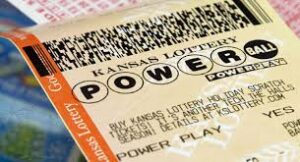
Some people’s plan is to live off their dead relative’s money. I have inherited money just one time. It was back in 1974, more than 50 years ago. My share of the proceeds was $13,000. For the life of me, I can’t remember what I spent that money on. Others are counting on the “Red Neck Retirement Plan”. What’s that? Winning the lottery! Did you know your chances of winning the lottery are virtually the same..whether you buy a ticket or not? Of course, you can’t win the lottery unless you own your own bowling shoes either. Didn’t know that did you?

Before you retire.
Before one retires, it’s a good idea to get a handle on how much money you expect to spend each year in retirement. Then, you need to save enough money (I don’t mean “save” as in putting money into a bank) so you can live out your last days and years without ever having to work for money again. I’m talking about budgeting here folks. The various first element of a good retirement plan is to have a budget. You need to know where your money has been going and where it will be going. Can’t do a budget? No problem. Stop reading right now. Go buy a lottery ticket!
Sometimes, on a lazy afternoon, I look out over the ocean and wonder how I was able to accumulate enough funds so that I didn’t have to work at all. Despite having some retirement resources I never had the big budgets of those Dreaded East Coast Trackchasers. Even in retirement, I have never received a company pension of any kind whatsoever.
Nevertheless, we maintain a modest seaside cottage in the sleepy little seaside village of San Clemente, California. We live on our personal savings, investments made over time and funds from our company’s profit-sharing program. When I retired from the company, they gave me what was in my profit sharing account and wished me well. I don’t think there is a better company in the WORLD for achieving lifelong financial security than the Procter & Gamble Distributing Company.

Nearly twenty years ago now.
So here I was back on July 1, 2002, a bright-eyed and bushy-tailed wet behind the ears (metaphorically speaking) newly minted retiree with a few greenbacks in my back pocket. Now I had to make sure those few dollars would last me, and Carol, through the next 40-50 years of retirement without ever having to go back to work again.
How would I make this happen? First, I looked at Carol’s expenses. That was only fair. I would be flying all over the world seeing new racetracks. That was going to be expensive. We couldn’t BOTH be spending money. Where in our budget could I cut her expenses?

I figured if she had her hair done every two years or so, that would be fine. I looked in her closet. She had plenty of stuff. She could easily wear the same clothes she had from college unless of course, she gained weight. That got me to thinking that maybe I should cut her food budget………..so I did.

You can’t do a thing in financial planning without having a budget.
After figuring out how much more money I would be spending in retirement and how much less money she would be spending, I had our retirement budget. Now I simply had to invest OUR money (yes, California is a community property state) in a way that would generate the funds we would need for a lifetime without ever having to work for money again.
This may seem like a simple process and it can be. However, for the untrained, it is an impossible task. If you fall into the “untrained” category, I highly recommend you get some competent help. There are a million ways to invest your money. I can’t talk about them here and stay within my self-imposed limit of 6,000 (I think I missed that goal on this one) words for each Trackchaser Report. Here’s what I did.
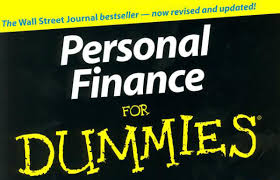
How did I create a sustainable retirement fund?
Editor’s note: This is one of the most important paragraphs I will share with you on the subject of successful financial planning.
First, I wanted to have a fully diversified investment portfolio. I’m a bit of a risk-taker but I didn’t plan on going to Las Vegas with my retirement bankroll. I subscribe to the William Bernstein theory of investing. He is a proponent of low-cost index allocations that focus on allocating your money based upon asset classes rather than individual stocks or bonds. He is also anti-market timing. If you would like to learn a bit more about Mr. Bernstein click on this link:
Learn more about William Bernstein
I am surprised by how many of my friends who don’t follow the stock market that closely and who swear they are not market timers……are really market timers. Anybody who feels they know what the market is going to do tomorrow, next week or next year and then changes their investments based upon those feelings is a market timer! Frankly, I think they’re crazy. I’ve had some very intelligent friends who own profitable businesses tell me, in all seriousness, that they pretty well knew where the market was headed in the short term. Ego is a very dangerous thing!
I highly recommend the Bernstein book “The Intelligent Asset Allocator”. If you read that, understand it and then implement those strategies you will have a bright financial future. Mr. Bernstein has written more books since the Intelligent Asset Allocator book was published. You may want to reference those as well.
Editor’s note: This is one of the most important paragraphs I will share with you on the subject of successful financial planning.
The overriding takeaway is simply THIS…..invest in low-cost mutual funds that index major stock and bond categories. Allocate your money based upon asset classes rather than individual stocks or bonds. Do not try to time the market. Rebalance your portfolio at least once a year. If you can do these few things you can stop reading right now…..just like the idiot who bought the lottery ticket.
Please, take my money.
Armed with Mr. Bernstein’s teachings at retirement, I went off to the Vanguard Group and gave them all of our money. Yeah, that’s right. I just wrote ‘em a check. I had them invest it in six stock mutual funds and five bond mutual funds that they recommended. These funds charge extremely low management fees. It’s incredible how little they charge. Now, nearly 20 years later I still have the same eleven funds I started with. There are other firms similar to Vanguard but those people have worked very well for me.
O.K., just how incredibly low are their fees? We have the biggest percentage of our funds in the Vanguard Total Stock Market Fund. It makes up about 25% of our total portfolio. This fund invests in more than 3,000 stocks representative of the entire U.S. market. The fund’s expense ratio is 0.04%. What does that mean? They charge us $4.00 for every $10,000 we invest with this fund. That’s 95% lower than the average expense ratio of funds with similar holdings. The overall weighted expense ratio for all of our Vanguard investment is just 0.14%. That’s it! That’s how inexpensive it can be to invest in Vanguard mutual funds.
Our six stock funds are mostly index funds. Bernstein recommends index funds for their cost-effectiveness. As you probably know, index funds are groups of stocks that mimic indices like the S&P 500 and others. Our stock funds include U.S. based companies, foreign indices, small and large stock groups and value and growth stock groups. You likely also know that the vast majority of actively managed funds do NOT beat index funds. Why in the world any long-term investor would put their money in an actively managed fund or employ a financial planner who does the same thing is beyond me. The investor who does that has about a 10% chance of beating the mutual fund index investor.
My five bond index funds include short-term, intermediate-term, long-term and junk bonds. That pretty much covers all bond-investing groups. Bonds won’t return as much as stocks over the long term. However, in bad times for the stock market bonds won’t go down as much as stocks likely would.
I choose to put 64% of our money in stock funds and 36% in bond funds. To some that might seem like an aggressive approach for a retiree. As of 2019, I am now 70 years old. The Social Security government life expectancy tables tell me, on average, I will live to be about 85.4 years old. Of course, I have a 50% chance of beating that number. That’s REALLY bad news for those Dreaded East Coast Trackchasers! This means that if I were to just live to the AVERAGE life expectancy I would have another 15 years to spend our retirement savings…..without going broke. That’s a long time in the investment world. Heck, it’s a long time in the trackchasing world. Carol might live even longer, especially now that she will be able to maintain a lesser weight because her food budget has been reduced.
Invest for the long term; play in the short term
Over the long run (since about 1930), stocks have earned about 10-12% each year. I have managed money for some friends and family. What they sometimes forget is the fact that just because stocks AVERAGE 10% each year, that does not mean they will go up 10% each and every year. Some years stocks will be up 20-30% and some years they will be down by like amounts. Everyone’s most recent experience during the financial crisis bears this unhappy statistic out. Of course, investors can’t expect the market to go straight up like it has over the last few years either.
The S&P 500 began in 1926 with 90 stocks. Why did they call it the “S&P 500” with only 90 stocks? I have no idea! Nevertheless, from 1926 through 2018 the S&P 500’s average annual return is 10%. Since 1926 long-term bonds have returned 5-6%.
Don’t be swayed by the “theory of recency”. That’s simply the idea of thinking that what has occurred recently will predict the future. Interest rates have been down for a while now. Currently, the 10-year bond rate is 1.51%. Did you know that in the early 80s it exceeded 14%! I figure with my allocation of stocks and bonds that my portfolio should average about 7-8% each year. If it does then I will be “golden” as we used to say back on the block.

Now to the present.
Yes, now to the present…….I woke up on Friday morning, October 11, 2019, and grabbed a flight to Canada. Even though this was my annual “rebalance” day I still had a trackchasing life to lead. Yes, I knew it was time to “rebalance” my retirement portfolio after 17 years of successful investing. How did I know this? I get messages from multiple people who ask me every year, “It’s about time to rebalance your portfolio isn’t it”. They follow this stuff almost as closely as I do!
Editor’s note: This is one of the most important paragraphs I will share with you on the subject of successful financial planning.
Of course, I rebalance every year. My portfolio returns for the past year had been decent. Stocks were up a little. However, for the first time that I can ever recall, bonds were up even more. Who would have predicted that? Having a third of our funds in bonds protects us from bear markets like we saw in year six. Some might say I should have been invested 100% in stocks since day one. That’s kind of like saying that because your house didn’t burn down your homeowner insurance premiums were a waste.
We’ve only had one negative return year since I retired. I am happy to report that with this year’s positive results our year by year investment returns look like this:
Annual return Annualized return
Year 1 22.8% 22.8%
Year 2 10.3% 16.4%
Year 3 9.6% 14.1%
Year 4 11.4% 13.4%
Year 5 15.9% 13.9%
Year 6 -24.1% 6.5%
Year 7 24.6% 8.9%
Year 8 4.1% 8.3%
Year 9 1.3% 7.5%
Year 10 11.0% 7.8%
Year 11 15.3% 8.5%
Year 12 5.0% 8.2%
Year 13 5.7% 8.0%
Year 14 5.5% 7.8%
Year 15 15.4% 8.3%
Year 16 4.3% 8.1%
Year 17 8.5% 8.1%

Ya, I know. Year 6 was a bummer! Yes, investing is a lot like golf. If you didn’t have to count your bad scores you would really do well! As you can see as the time expands the ROI begins to approach what one might expect from “market return averages”. The longer your portfolio is invested the less volatile your annualized ROI results become.
A combination of stocks and bonds in the ratios I use should return 7-8% over time. After the good years, I might beat that average and after the poor return years, I will likely lag the overall average. If I can get long-term average market returns I will be more than happy. No, if I can do that I will be THRILLED!
Remember, I’m not trying to get a 15% return each year. If I was I would likely end up with more MINUS 15% returns in too many of my golden years. That would make sleeping at night more difficult. I’m not even trying to beat the market. I will be happy with matching the market over the long run. If that happens I will continue to sleep well. Give me a solid 7%-8% plus or minus a point, like the market has done over time, and I’m going to be happy.

Inflation.
Let me talk about inflation for a moment. There hasn’t been much lately. That doesn’t mean there won’t be in the future. As recently as 1980 (actually that WAS 36 years ago!) inflation came in at 13.5%. I don’t give much thought to inflation for several reasons. First, I’m only expected to live 15 more years. Secondly, and probably most important, our major household expenses are protected against inflation.
Our house payment is locked in for the long-term. Our real estate taxes can only go up by 2% each year by California state law. Our cars are paid for and won’t need to be replaced for a good while…..even though I do have a reservation in on a new Tesla. Our electric bill (normally $500-$600/month) is now zero because we have solar. All of these expenses would normally be well over 50% of our household budget. Let’s say they account for 60% of our expenses. That means that 60% of our expenses are capped at a less than 1% increase for the long term.
However, inflation is likely to occur over the next 15 years and even longer for our other expenses. Let’s say the average Marriott or Hilton hotel goes for $150 per night now. If inflation were to average 4% a year for ten years then those hotels would cost $222 per night. How would that affect us? There would be several ways to fight inflation like that.
If our investments were doing well (better than the 4% inflation rate) we would have more money than we had when hotels were charging just $150/night. We could always go on the same trip but stay in a Holiday Inn or something below the quality of a Marriott hotel. I currently travel about 175 nights each year. Yes, you read that right. I have AVERAGED about 175 nights of travel for every year that I’ve been retired. In 2018 I traveled overnight away from home 213 nights! If inflation was too strong we could simply travel a little less. It might be expected that we will cut down on our travel as we age anyway. Of course, I use Priceline.com today. I often get Marriott hotels for just $50 U.S. per night with Priceline. Priceline could be a great inflation fighter in the future as it is today.
“Fighting” inflation can be done in other expense categories as well such as cars, clothing, services, etc. The consumer can get a new car every six years rather than five. They can buy a less expensive model. They can have their house cleaned one less time per month. You get the point. At my age inflation isn’t even on my radar screen.

Long-term care.
We have chosen to “self-insure” for our long-term care needs. Yes, long-term care as in nursing homes and the like is expensive and getting more expensive by the day. However, the majority of people never need long-term care of the nursing home type variety before they die. For those people who do need these services they often don’t need them for that long. Of course, this choice is a gamble of sorts. We won’t know until the game is late in the fourth quarter if we made the right call.
I’ve heard it said that poor people don’t need long-term care insurance because the government will cover their needs. Wealthier people don’t need it either because they can afford to pay for long-term care if the need arises. It’s the folks in the middle who have too much that the government won’t pay for them and not enough that they can cover the expenses themselves. We feel we can afford long-term health care on our own if we need it and if we don’t need it for twenty years!

Mortgages.
I’m a firm believer that people, over fifty or sixty years of age SHOULD have a mortgage on their home. This is especially true if they have a significant portion of their net worth tied up in their home equity. Too many people can’t enjoy their golden years because too much of their money is in home equity and not readily available to them.
We have an “interest-only” mortgage. The very LAST thing I want to do financially is to move money from my investment accounts into more home equity. If one had a fully amortized loan, requiring the payment of principal and interest, taking money from investments (oftentimes taxable investments) to put into home equity would be exactly what would happen. Far too many people have far too much of their net worth tied up in home equity. Home equity is not that easy to get at inexpensively.
The bottom line.
Through October 2019 our annualized ROI now stands at 8.1%. We didn’t panic and sell everything when the market went down big time during the financial crisis. We didn’t panic and begin buying after the market has come back up more than 50% since the 2008 bottoms. We just gritted our teeth and held on. That takes some discipline, but I follow the Bernstein theories. Those theories are not rocket science. They are not science fiction. They are just good common sense investing theories that have proven their worth over a very long investment time frame.

This is the important part.
Rebalancing is important. The purpose of a “rebalance” is to sell what has done well recently and buy what has done “less well” recently. This strategy might seem somewhat counter-intuitive but it’s not. This meant, that during my rebalance in 2019, I would be selling bonds and moving money into stocks. There is a statistical concept called “reversion to the mean”. In non-technical language, it means that if your local baseball team wins about 60% of its games normally (sadly not the Angels) and they have just finished winning 80% of their last 30 games, they are likely to “revert to the mean” and begin losing enough to get them back to their historical 60% success rate. Rebalancing is important.
Let’s recap if you’re with me so far. I won’t be looking at the market on a day-by-day basis. I probably won’t look at it on a weekly or maybe even monthly basis. My friends know that I have some knowledge of investing. The guys down at the golf club will sometimes ask me what I thought of a particular move (up or down) in the market. They seem astonished when I tell them I don’t know what they’re talking about! This daily viewing of your investments is a waste of time. It’s a good idea to keep an eye on those “Dreaded East Coast Trackchasers” on a daily basis but not the stock market. Watching the market too much will only serve to increase the wrinkles on your face and then you’re facing a huge Botox expense. I won’t think much about the market over the next year. I definitely won’t buy or sell anything (other than to cover living expenses) for another full year.
Remember the prudent choice is to maintain an asset allocation of broadly diversified, low-cost investments regardless of the market environment…..or you could go to Vegas!

What will YOU do?
Now, what will you do with all of this information? Will you simply say, “That was a cute way of presenting the information”. Or, “Randy didn’t seem that smart when I knew him”. Will you look at your spouse’s budget and cut like crazy? Will you discuss this with your spouse or investment advisor? Will you buy a William Bernstein investment book? On the other hand, will you simply do nothing? Remember when you do nothing you are really doing SOMETHING.
If you’re in your 20s or 30s you need to act NOW. The power of compounding returns over time is your very best friend. If you’re in your 40s and 50s you are late to the party. You will have to step on the gas and keep the pedal to the metal hard until you submit your retirement papers. If you’re in your 60s or more….just give up! You’re too late! The party is over for you if you haven’t started planning for your golden years a long time ago. If you are in your 60s or more is there ANYTHING you can do? Yes, there is. Send a link from this post to your kids….and then pray for that inheritance.
It’s your call. I wish you the best. I hope that everyone reading this can retire early if he or she wants. I hope they can live to an age that surpasses their Social Security life expectancy. I hope they have enough money to buy a butterscotch sundae if they choose and still have enough left over to provide for their family and/or give to a charity if that’s what they want to do.
Editor’s note.
For many people talking about money in public and even in private is taboo. That is not the case for me. I don’t know where I acquired this habit, my parents or grandparents never talked about money. However, we frequently talked about money with our children and still do today. They all say that has helped them.
Editor’s note: This is one of the most important paragraphs I will share with you on the subject of successful financial planning.
There will always be people who have more money than I do and people who have less. It doesn’t matter to me how much money I have relative to others. I simply want to have enough money to do what I want to do without ever having to work “for the man/woman” again. You will never hear me begrudge the wealth and success of others who have more than me. You will never hear me complain about taxes. You will never hear me say that I’m being held down by the government or any particular political party. Just give me the rules of the game and I’ll be waiting for you at the finish line.
Editor’s note: This is one of the most important paragraphs I will share with you on the subject of successful financial planning.
To me, talking about money is no different than explaining to someone what I had for breakfast this morning. I will say this. When you hear money advice or any advice for that matter, I recommend only taking advice from people who are doing better than you are in the area where the advice is being given. Like I said, when I go to a golf pro to take a lesson I listen and act on their advice. Why in the world would I do that? Because the golf pro can play golf better than I can!!
One last thing.

One last thing. You might want to share the above with your spouse or significant other. If you don’t, how else will they understand why their food portions seem a little smaller!

O.K., this IS the last thing.
I’m not above frequently asking myself, what if everything went wrong? Yes, it could. I could get hit by a bus. The stock market could crumble and stay down for a long time. The value of our modest seaside cottage in the sleepy little seaside village of San Clemente could plummet if folks decide they like Minnesota winters more than they like ocean view properties. Well, maybe that won’t happen. Lots of bad things can happen. Remember, nobody gets out of this thing alive. However, if bad things don’t happen for at least a while we are going to live very comfortably until they do.
Annual addendums.
Each year since 2017 I’ve been providing additional information about how I think about financial planning. You’ll find all of that behind the various drop-down tabs in this post. Remember I didn’t develop any of these financial concepts. I just did my homework and adapted them to our situation. My 2019 addendum might be a little strong for some folks but it’s simply because I feel so strongly about these issues.
2017 Update – Metaphorically Speaking
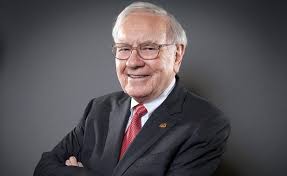
The Warren Buffet of San Clemente?
Last night I was sitting in my living room while my wife was preparing dinner. I yelled into the kitchen, “I think I may be the Warren Buffett of San Clemente.” She yelled back, “What do you think you’re going to want to drink with dinner“? I said, a little louder this time, “I think I may be the Warren Buffett of San Clemente.” She peered out of the kitchen and looked at me over her reading glasses. It was that more than a skeptical look that I’ve grown to love after more than 44 years of marriage.
You see my thinking all came about when I was rebalancing my retirement portfolio last night. I rebalance everything once a year just like William Bernstein tells folks to do.
This past year was a very good financial year for my well diversified by asset class basket of 11 stock and bond mutual funds. Most of those funds are index funds.
My 2016/17 fiscal year showed a 15.4% rate of return. Over the past 15 years that I’ve been retired my annualized ROI is 8.3%. Of course, I use the modified Dietz method to calculate returns. Who wouldn’t right?

In the financial world the phrase, “A rising tide lifts all boats” comes to mind. Yes, over the past 15 years the stock and bond markets have done well. With my focus on index funds, I’m really only trying to match what the market does. Over the years the returns the market have generated have been good enough for me. I don’t need to beat the market. I’ll be happy just to get the market.
I told my wife that I had been imagining myself on the metaphorical sea where all kinds of boats were floating past. This brought an even more skeptical look as she passed the breadsticks.
As I looked out over that sea I noticed that some people had bigger boats than me and some smaller. At least I had a boat! Just 10% of the people in America own 80% of the stocks and bonds and therefore most of the wealth. That’s right. Not everyone owns a boat.
When I retired would I have signed on for an 8.3% annualized return for the next 15 years? You Betcha as we say in Minnesota. O.K., I have never lived in Minnesota but I think they say things like that.
I have managed 100% of my retirement portfolio since I retired. Of course, I had the good sense to read all about stuff from William Bernstein. I then invested my money with Vanguard. They manage money for people at extremely low costs.

The overall weighted expense ratio for my entire Vanguard portfolio comes in at 0.136%. That means for every one million dollars that I have invested Vanguard charges me $1,364 to manage it each year. If I had a $5MM portfolio, and I’m not saying I do or don’t, then Vanguard would charge me a little bit less than seven grand to manage it annually.
I’m going to guess that with my broadly diversified portfolio of primarily index funds that I have pretty much matched the market for the last 15 years. Remember index funds ARE the market.
How many mutual funds or financial advisors do you think have “BEATEN” the market over that time frame? I’ll bet the number is right around 10! Let’s say they didn’t beat the market and they charge quite a bit more than $7,000 a year for a $5MM portfolio. An advisor that charges just 1% of a $5MM portfolio’s balance would be costing you $50,000/year….not less than $7,000 right? Over a 15-year time frame that’s a pretty wide number. Was that a good deal for the people who followed their advice?
It would seem, although who really knows, that the investment world is richly valued at this point. That might mean that if the market is going to “revert to the mean” near term future returns will be less than the historical average. That’s a nice way of saying there’s a good chance the market will correct sooner rather than later. I would expect that.

I’m a buy-and-hold investor. I didn’t take a dollar out of my stock and bond mutual funds when the financial crisis happened. When the market tanks in the next year or three years or 10 years or whenever I still won’t get out of the market. I might ride the plane into the ground but you won’t see me selling when prices go down.
Since 1950 the market has corrected by 10% or more 35 times. In every one of those instances, the point where the correction began was exceeded in weeks, months or sometimes years. It’s difficult to go against a batter that has hit safely 35 times in 35 at-bats.
It’s going to be impossible for anyone else to compare his or her results with mine. Don’t waste your time. No one else has my investments over my timeframe with my fiscal year.
I would just say it this way. If you or your investment advisor has beaten the market over a period of 15 years then maybe you and/or your investment advisor are the Warren Buffet of your little town. It’s more likely that people don’t know what their rates of return have been let alone whether they beat the market or not. I won’t even touch on the risk that one portfolio might have compared to the next.
My wife and I were in the midst of dinner now. We had gotten past the idea of my being the Warren Buffett of San Clemente. We agreed I wasn’t. We had now moved onto the topic of that ne’er-do-well neighbor. Yes, a rising tide does lift all boats. But when it comes to my neighbor the conversational waters can get a little choppy.
Randy Lewis
San Clemente, California
2018 Retirement Portfolio Update

Each year I provide an update to the Procter & Gamble Retiree Conference on the status of my portfolio. I do this for several reasons. My results can provide one more “data point” for those who enjoy managing their own plans. My feedback can help the novice investor with his/her retirement planning process. If you fall into either of those two categories or are reading for any other reason you can check out my point of view.

I have now been retired for more than 16 years. Somehow I went from a newly minted retiree to probably on the “veteran” side of retirement. I’m not exactly sure that’s a good thing but it is what it is.
For most of the last sixteen years, I’ve been sharing my annual stock and bond portfolio results in this conference. Why do that? It simply adds another data point for folks who like to think about this topic.

I rebalance my portfolio every October 11. I never deviate. It does seem that in the week before I rebalance the market nearly always takes a dive. I’ll bet that has happened a dozen times or more. This year the Dow tanked nearly 7% during the week before I rebalanced!
I hate it when that happens. No, you don’t understand. You can’t see how my face is all scrunched up! I really hate it when that happens! Alas, I can’t do anything about it. Whatever decline I seem to get in the week before October 11 will simply give me a better beginning for the next year.
I ended my fiscal year, 2017/2018, with a 4.3% annual return. For my entire 16-year investment period my annualized results for a 65/35 stock/bond portfolio is 8.1%.
I looked at what I wrote last year. I decided that I couldn’t really improve on that essay all that much. Therefore, in the pursuit of simplification and efficiency, I will share what I wrote last year AGAIN but with the numbers updated and with a couple of significant adds when it comes to comparing the fees charged by an investment advisor and those charged by large investment firms for a portfolio of index mutual funds as always I hope someone finds some value in this sharing.
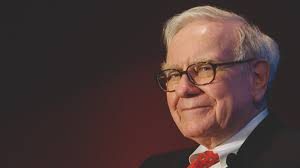
“The Warren Buffet of San Clemente?

Last night I was sitting in my living room while my wife was preparing dinner. I yelled into the kitchen, “I think I may be the Warren Buffett of San Clemente.” She yelled back, “What do you think you’re going to want to drink with dinner“? I said, a little louder this time, “I think I may be the Warren Buffett of San Clemente.” She peered out of the kitchen and looked at me over her reading glasses. It was that more than a skeptical look that I’ve grown to love after more than 46 years of marriage.
You see my thinking all came about when I was rebalancing my retirement portfolio last night. I rebalance everything once a year, on October 11, just like William Bernstein tells folks to do.
I should point out that Mr. Bernstein does seem to say, in his more recent publications, that as you age you might want to get a little more conservative. That almost sounds like “market timing” to me. My allocation has been 65/35 stocks and bonds. Is that too aggressive? I guess it depends on a person’s willingness to take risks. The IRS tables say I have a 50/50 chance of living another twenty years. That being the case, I sort of like my 65/35 ratio. I’m pretty sure we’ll have our fair share of bull and bear markets over the next twenty years.
This past year was rolling along in a decent fashion until the Dow dropped nearly 7% in the week before I rebalanced. That dropped my 2017/18 return to “just” 4.3%. I guess I’ll take that. I have too. By the way, my entire retirement investment portfolio is in a well-diversified by asset class basket of 11 stock and bond mutual funds managed by Vanguard. Most of those funds are index funds.
Yes, my 2017/18 fiscal year showed a 4.3% rate of return. Over the past 16 years in retirement, my annualized ROI is 8.1%. Of course, I use the modified Dietz method to calculate returns. Who wouldn’t right?
Don’t know what the Modified Dietz method is? I’d recommend you Google it. In a nutshell, the Modified Dietz method allows you to compute your returns when you have a starting balance, an ending balance and a few additions and withdrawals to your account during the year.

Let’s say you started with $100,000 in your account. A year later that account was worth $120,000. If that was all there was to it your “ROI” for the year would be 20%. But what if 33 days into the year you added $17,234 when that Kentucky Derby long shot came in? Then 166 days into the year you took out 45,334 to buy the Lexus. Finally, your kids gave you a sob story about how they thought a college education was important so you withdrew 32,500 to cover that. Under these circumstances, an account with a $100,000 starting balance and a $120,000 ending balance would NOT have a 20% ROI. That’s where the modified Dietz method comes to the financial accuracy rescue.

In the financial world the phrase, “A rising tide lifts all boats” comes to mind. Yes, over the past 16 years the stock and bond markets have done well. With my focus on index funds, I’m really only trying to match what the market does. Over the years the returns the market has generated have been good enough for me. I don’t need to beat the market. I’ll be happy just to get the market.
In an effort to include my wife in our financial planning world, I told her that I had been imagining myself on a metaphorical sea where all kinds of boats were floating past. This brought an even more skeptical look as she passed the breadsticks.
As I looked out over that sea I noticed that some people had bigger boats than me and some smaller. At least I had a boat! Just 10% of the people in America own 80% of the stocks and bonds and therefore most of the wealth. That’s right. Not everyone owns a boat.
When I retired would I have signed on for an 8.1% annualized return for the next 16 years? You Betcha. Would I sign a contract accepting an 8.1% return for the NEXT sixteen years? You betcha.
I have managed 100% of my retirement portfolio since I retired. Of course, I had the good sense to read all about stuff from William Bernstein. I then invested my money with Vanguard. They manage money for people at extremely low costs.
The overall weighted expense ratio for my entire Vanguard portfolio (11 funds) comes in at 0.136%. That means for every one million dollars that I have invested Vanguard charges me $1,364 to manage it each year.
I’m going to guess that with my broadly diversified portfolio of primarily index funds that I have pretty much matched the market for the last 16 years. Remember index funds ARE the market.
How many mutual funds or financial advisors do you think have “BEATEN” the market over that time frame? I’ll bet the number is only about 10%! Let’s say those advisors didn’t beat the market. They would charge quite a bit more than $1,364 a year for my hypothetical $1MM portfolio.
An advisor that charges just 1% of a $1MM portfolio’s balance would be costing you $10,000/year. $10,000 is not less than $1,364. Over a 16-year time frame that’s a pretty wide number.

The difference between an advisor charging $10,000 to manage a $1MM portfolio and Vanguard charging $1,364 is $8,636 each year. That’s the extra charge that an advisor, who charges 1% to manage a portfolio, brings to this party. What if that $8,636 was invested at the return I’ve achieved, 8.1% for 16 years? How much would that be worth? Are you ready for this? The answer: $264,096.
A person with an advisor who charges 1% would pay more than a quarter of a million dollars MORE than what Vanguard charges (there are other financial advisor companies who have rates comparable to Vanguard) and that’s IF they could generate a return that matches the market. Most actively managed funds/advisors cannot do that.
Let’s say your advisor charges only 0.5% (1/2 percent) on the money he/she manages. What’s the difference compared to the .0136% management fee? Well, first it’s $5,000 for each one million managed less the $1,364 Vanguard fee. That’s a difference each year of $3,636. If you invested that amount for 16 years at 8.1% how much would it be? The answer: $111,192.
If your investment advisor brings $264,000 in value for managing a $1MM portfolio over 16 years stick with them. If not, you might want to consider low-cost well-diversified index mutual funds.

So, what does the future hold? I have no earthly idea. It would seem based upon historical benchmarks, although who really knows, that the investment world is richly valued at this point. That might mean that if the market is going to “revert to the mean” near term future returns will be less than the historical average. That’s a nice way of saying there’s a good chance the market will correct sooner rather than later. I would expect that.
I’m a buy-and-hold investor. I didn’t take a dollar out of my stock and bond mutual funds when the financial crisis happened. When the market tanks in the next year or three years or 10 years or whenever I still won’t get out of the market. I might ride the plane into the ground (I know I’m mixing my metaphors with the rising tide floats all boats thing) but you won’t see me selling when prices go down.

Since 1950 the market has corrected by 10% or more 35 times. In every one of those instances, the point where the correction began was exceeded in the coming weeks, months or sometimes years. It’s difficult to go against a batter that has hit safely 35 times in 35 at-bats. Too young for the Ted Williams reference? Google it.
It’s going to be impossible for anyone else to compare his or her results with mine. Please, don’t waste your time. Dave, are you listening? No, you are not really listening….you never do. No one else has my investments over my timeframe with my fiscal year.
I would just say it this way. If you or your investment advisor has beaten the market over a period of 16 years then maybe you and/or your investment advisor are the Warren Buffet of your little town. It’s more likely than not that people don’t know what their rates of return have been let alone whether they beat the market or not. I won’t even touch on the risk that one portfolio might have compared to the next.

My wife and I were in the midst of dinner now. We had gotten past the idea of my being the Warren Buffett of San Clemente. We agreed I wasn’t. We had now moved onto the topic of her ne’er-do-well brother. Yes, a rising tide does float all boats. But when it comes to my brother-in-law the conversational waters with my wife can get a little choppy.”
Randy Lewis
San Clemente, California
2019 Retirement Portfolio Update

The year 2019 has been another solid investment year. My diversified allocation of stock and bond mutual funds (mainly index funds) returned 8.5%. My average annualized return on investment, over a 17-year investment period is 8.1%. That’s about what would be expected from the type of balanced stock and bond portfolio that I have. If I could sign a contract right now to get an 8.1% for each and every year of my life…..I would.
However, there aren’t any contracts like that. No one can predict much in the future let alone what financial returns might be. I am proud to tell you that I’ve only had one losing year in seventeen. That one negative result was a doozy though. I lost more than 24% of my total portfolio in year 6. You might remember that year. Does the phrase “financial crisis” ring a bell? Lots of people got out of the stock market after that experience…..and never got back in. Those people missed out on one of the best 10-year plus bull markets in history. That’s a great lesson in not trying to time the market!
Each year I provide an update to the Procter & Gamble Retiree Conference on the status of my portfolio. I do this for several reasons. My results can provide one more “data point” for those who enjoy managing their own plans. My feedback can help the novice investor with his/her retirement planning process. If you fall into either of those two categories or are reading for any other reason you can check out my point of view. Here goes!

O.K. I apologize!
First of all, I will apologize in advance. I don’t want to offend anyone with what I am about to share. Some people do get offended when someone offers up ideas that are different than what their long-held beliefs are. I don’t. I have my beliefs but I am always interested in how other people see things even when there is about a zero percent chance I will change my view.
I am not disillusioned enough to ignore the fact that just about everyone reading this is already locked into their financial plans and probably couldn’t change if they wanted to. Why share this then? In my judgment, it’s always a good idea to listen to all points of view. Again, most folks don’t do that all that much. Too many folks listen for confirmation of their own line of thinking rather than listening for information (kind of like talk radio!).
So have I offended you yet? I certainly hope not. I’ll share with you a post I sent to the nearly 4,000-strong members of the Procter & Gamble retiree conference. They are a group of very intelligent people who range in age from something like 55-80. They are retired. They are managing their money and implementing their financial strategies one way of the other.
There are some financial ideas that have been shared in the Procter & Gamble retiree conference that I couldn’t disagree with more. Does that make those ideas that I don’t agree with bad? Absolutely not. Nevertheless, I’ll offer up some thoughts on why I think the way I do on several different financial topics. Then you can decide what to do next. If you are locked into your financial plan/strategy maybe you will want to pass this along to someone who still has time to change like your kids or whomever.

What are my credentials to support any strategic financial strategies I might have? Before I tell you I suspect there are many people in this conference that have better financial backgrounds than me.
I retired nearly 18 years ago. I believe my financial strategies have been working well over a long period of real-life experience. In retirement, we have been spending like crazy. When, in this conference, have you ever heard someone say that? Never?
Today our net worth is roughly the same or a little bit higher than when I retired. We didn’t inherit any money. My wife hasn’t worked outside the home for the last forty years. We paid for 12 years of UCLA undergraduate education for our three children. I have made some money on a few outside investments (nothing from Ukraine!) but I wouldn’t say those have had a material impact on our financial results.

MORTGAGES
I agree 100% with the strategy that it’s a good idea to carry a home mortgage for people aged 50-60 years of age and older. Of course, every statement I make like that comes with a caveat. If a significant part of your entire net worth is tied up into the equity of your house you need a mortgage or home equity line of credit to get at those home equity funds. Why have a big part of your overall financial assets in a place where those assets are difficult or nearly impossible to get at?
I am a huge supporter of first having a mortgage and then having an “interest-only” mortgage. Why in the world, when you are older, would you have any enthusiasm toward reducing your loan balance? Why would you want to have a principal and interest fully amortized loan? Just about the very last thing I want to do is move money out of my investments, be they taxable accounts or not, into home equity. That makes no sense whatsoever in my opinion.
I think retirees, if a large part of their net worth is tied up in home equity, and their lifestyle is being limited in any way, should have as large of a mortgage as they can pay for. It goes without saying, but I will say it anyway, I’m talking about a large mortgage that can be serviced without issues for the term of the mortgage.

LIFESTYLE
I’m probably going to get very few folks to admit that their lifestyles might be somewhat or a lot limited because of their financial planning strategies. Most people tend to think, “We are quite comfortable thank you. We’re doing O.K.”

That may or may not be fully true. However, one thing that is true is that we are all aging. What are you going to do with your money? You are likely in the fourth quarter of your lifespan. If you don’t spend it, or at least some of it, who will? Again, I’m not talking about flying to Vegas and putting it all on RED. That would be stupid. If I went to Vegas I would put it all on BLACK! Just don’t work and save your entire life and forego that cruise or that cruise with the entire family or whatever. Money is for trading for things.
Secondly, there are folks that say and I will use these numbers hypothetically, that “We can live on $100,000 a year just fine. We don’t need to spend $150,000 or more a year even though we could”. I would say this. What are you waiting for? As one of my good P&G friends leaves at the bottom of each email he sends: “If you don’t travel first class your children will!”
As I mentioned at the beginning of this note I don’t want to offend anyone. I spent more than 25 years of my life in the Midwest, Illinois to be specific. With that background, I feel qualified to make these observations. Midwesterners are conservative (I don’t mean politically but lifestyle-wise). Procter & Gamble was just about the most conservative company that anyone could go to work for. Older people are conservative. Conservative people are conservative with their money.

This is not a criticism. It’s really more of a factual observation. This is not something that applies to everyone in this group. However, a person who worked for Procter & Gamble and retired from P&G after a 30-40 year working career probably doesn’t look at life like a member of the Rolling Stones would.
I know that a lot of people think it’s a good idea to not spend today and pass those funds along to their children. Overall, I’m not sure that’s a good idea to the extreme. There are very few ideas on any subject that are good in the extreme.
Luckily, our kids all have great education and excellent jobs. It’s unlikely they will ever need any money from us. I certainly wouldn’t want to lay a guilt trip on myself or my wife and say that we couldn’t buy this or that because the money would be better given to our children. I believe money given to children has the downside of creating an entitlement situation more than anything else. My wife feels very strongly on this point.

TAXES
On the subject of taxes, I want to pay as little tax as I legally can. Who wouldn’t?
However, I disagree 100%……no, make that 1,000% with the idea of limiting my spending in order to keep myself in a lower tax bracket. If I ever say to my wife that we can’t spend $10,000 on a cruise or a diamond ring or a truckload shipment of pork rinds because that income would bump us up into the next higher tax bracket I hope she sits me down and slaps me until I can’t see straight.
I don’t know what the average age is of people in this conference. If I had to guess I would say it’s in the range of 60-70 years old. Some are younger. Some are older.
Let’s say you are 60-70 years old. In all likelihood, you are in the last quarter of your life. Life often parallels sports. The strategy a coach has for his or her team in the first quarter is usually different than the strategy that needs to be employed in the fourth quarter after much of the game has played out.
Here’s an example of what I talking about. If I am 70 years old and I am delaying the expense of something that I could very much enjoy more at 70 than 80 just to keep myself in a lower tax bracket I believe that is foolish. Very foolish.
I want to buy new cars, go on vacations and take my wife out to a restaurant nearly every night that I’m home just because I enjoy her conversation. At my age, I would never ever want to forestall any of the satisfactions for the purpose of delaying the payment of taxes. I wouldn’t want to do that to minimize taxes either.

Talk about the tail wagging the dog! Taxes are a result of good things like income. Income generates money. Money can be traded for good stuff. I think it is poor judgment to try to minimize taxes at the expense of your lifestyle.
If spending money to support your lifestyle increases your taxes so be it. Some folks, when they read this, will immediately stop listening. They will throw their slippers at the dog and yell to themselves, “We are doing quite fine thank you”. O.K., if you say so. Remember, money is for trading for things. A “thing” doesn’t need to be a material thing. Money spent can be on anything that gives you satisfaction. Don’t delay your satisfaction in order to stay in a certain tax bracket.
There are a couple of things that may need to be made crystal clear with the spending strategies I have outlined above. I hope everyone understands these clarifications.

I am NOT talking about spending so much money as to run out of money before the final checkered flag waves. However, I am fully advocating the enjoyment of the assets that you have built up to this point now not later.
If you are 65 years old today do you feel as active as you did when you were 45 or 55? If you are 65 years old today do you think you’ll feel as active when you are 75 or 85? If you can answer these questions honestly I think you know where I’m going with this particular point.
I’ll make one more point on the subject of aging. Let’s say you are 65 years old. What if I asked you what your life would be like if you spent a day at the beach with your grandkids when you are eighty? I would ask that you picture that scenario in your mind. Try that right now. We’ve got some time. Finished? We don’t have THAT much time.

Be honest. Did you picture yourself in your 65-year old body at the beach when I asked you to envision a day at the beach fifteen years from now? Did you picture the grandkids, who might be five years old today, as five-year-olds fifteen years from now rather than being twenty years old?

SOCIAL SECURITY
On the subject of taking Social Security early or late this is how I feel about it. I’ve done some research and it seems as if the age of 78 is the breakeven point. If you take Social Security at age 62 and don’t make it to 78 you were a winner (even though you died!). If you lived to be 78 or more you were a social security winner….sort of….read on.
We began taking Social Security at age 62. During our first year, we collected about $26,000. We don’t do anything special with that money. To be clear we do spend it! However, the 26 grand or so that we do get is $26,000 that we don’t take out of our taxable accounts for our expenses so I guess that’s a plus.
As I mentioned, if you die at age 78 you, “broke even” with Social Security if you started taking out funds at 62. If you die before the age of 78 and delayed taking out Social Security until the maximum age of 70 you lost. If you die after the age of 78 and delayed taking out Social Security until the maximum age of 70 you won……or did you? Let me offer up some additional detail.

I’m going to try to keep these numbers as simple as I can. Let’s say, one person, Mr. Green gets $26,000 in SS payments beginning at age 62. Then another person, Mrs. Orange delays taking social security until age 70. Both Mr. Green and Mrs. Orange are the same age.
By the time both are 70 years of age, Mr. Green has received $208,000 in social security payments. If he had been getting his living expenses from fully taxable assets (as many of us are) and DIDN’T have to take out $26G because he was getting social security funds then that $26G could stay in his IRA and earn more money.
Of course, social security income is taxed. Let’s say Mr. Green has an effective tax rate of 10% (that’s my effective tax rate for both federal and state). With a tax rate of 10% Mr. Green is getting $23,400 in SS benefits annually or $187,000 after eight years….after tax. For 17 years I’ve been earning right at 8% on my IRA invested funds. When I take that money out after federal and state taxes I might clear 5% using my current incremental tax rate.
So….Mr. Green takes social security at age 62 and spends it on his living expenses. Then when he turns seventy he can withdraw an extra $92,000 dollars (after-tax), which is what the $187,000 he DIDN’T withdraw earned over a period of eight years. Following so far?
Now here comes Mrs. Orange. She’s seventy now, has a few more gray hairs but is still doing fine. If Mr. Green got $26G at age 62 ($23,400 after tax) how much does she get at age 70? The answer for people born between 1943-1954 is about $46G annually. Of course, using the same 10% effective tax rate she ends up with about $41,400 annually. So at age 70, Mrs. Green is getting $18G ($41,400-$23,400) more than Mr. Green each year. For simplicity, I will ignore the impact of cost of living increases on this analysis.
At age 70 Mr. Green has received $187,000 (after tax) in social security payments but has also earned an additional $92,000 (after tax) in earnings from funds he didn’t have to withdraw from his IRA account over the past eight years. At this point (age 70) Mr. Green is skunking Mrs. Orange by $279G!!!
However, Mrs. Orange is not giving up. She has a plan. When they both turn 71 Mrs. Orange is catching up by $18G a year. It won’t be long now….or will it? Ignoring some MINOR financial calculations that don’t have much impact on this whole thing it will take Mrs. Orange 15.5 years to “catch up” to Mr. Green’s initial, at age 70, $279G advantage. At that point, Mr. Green and Mrs. Orange will now both be 85.5 years old!
Now I ask you….do you want to be nearly 86 years old when you beat the “Mr. Green” of your world? Will you even make it to 86? If that’s your plan and you make it to age 86 you will then be winning by about $18G a year…..for the rest of your life.
Folks do you know more people who are 86 years old or more or more people who didn’t make it to be 86 years of age? Yes, I know everyone has a great aunt who lived to be 99. Heck, I have a great aunt who is 100 and a good friend who is 103. I just don’t have very MANY relatives or friends who have lived to these ages.

I don’t want to overlook the social security “survivor benefit”. In a nutshell when one person in a married couple dies the remaining spouse gets the larger SS benefit of both people.
That’s fine if you think you’re going to need SS as a major part of your financial plan when you are likely much older. Some people will need that extra advantage. I just think the survivor benefit advantage is for those who want/need money later in life rather than those who would prefer to have more money in the early years of their retirement when presumably they might be able to enjoy it more. I doubt folks on one side of this debate could convince the others to change.
For us, $26,000 in SS payments is a big enough number but not a make or break number. I would just as soon have those Social Security benefits now for two major reasons. I’d like to have that money to spend one way or another for the enjoyment of life at age 62 or 72 rather than at 82 or 92.
Secondly, we all read that Social Security is in, “trouble”. How will they fix that? It’s pretty simple really. Legislators will either decrease benefits or increase Social Security taxes or both. There’s really no other way to think about it.
Maybe my social security benefits will be reduced or cost of living increases limited or there will be more taxes on SS benefits…..or all of the above. None of those changes would materially affect our lifestyle. However, as we have seen with the income tax changes over the past few years…. eliminating and/or reducing tax deductions are things that can and do happen.
So, that’s how I’m thinking about these issues. You may or may not agree with me. I wouldn’t want the people who don’t agree with me to look at what I’ve said and then distort my point of view and then make a case against their own personal distortion. People do that you know.

FINANCIAL PLANNERS
My views on some types of financial planners may rile some people. Remember, we’re just exchanging thoughts on these subjects right.
I’ve told you that Vanguard charges me, on average, about $1,400 (0.014%) for each one million dollars of my investments that they manage. Let’s say a financial planner charges you 1% in fees on a one-million-dollar portfolio. That’s $10,000. Folks, check me on my math but that’s a difference of $8,600 every year on each million being managed. How much is that over ten years or twenty years? It’s a big number!
One source I found stated that “the percentage of active managers who do beat the market is usually pretty small – fewer than 8% in most of the cases above over the last 15 years. I don’t know the exact number but every piece of research I’ve ever read says, that after fees, a very small percentage of active money managers can beat the market over several years of investment management.
You’ve seen that over a period of 17 years I’ve averaged a rate of return of 8.1% with my investments. After the initial investment advice, which didn’t cost me a penny, I have managed those assets myself.
Let’s say during this same time frame I paid an extra $8,600 to have a financial planner manage my money. First of all, they would have had a devil of a time beating my 8.1% ROI on low-cost mainly index mutual funds. The active manager likely would NOT have beaten my results. Over a period of 17 years, the financial planning fees would have cost me more than $293,000. That number comes from investing $8,600 at 8.1% for 17 years.

I would like to confirm that I understand that some people need help from financial planners. I don’t cut my own hair. I don’t rotate my own tires. I don’t make my own tacos on Taco Tuesday. I probably could do these things but it just seems easier to have someone else doing that work who is more skilled at it than me.
I have nothing against financial planners. I really don’t. I just don’t think the fees charged are worth the advice. I do support going to a financial planner, who is fee-based, for advice on whatever financial subject when that advice is needed.
Can a financial planner help with tax planning, insurance needs or estate planning and more. Yes, they can. I just think it’s a good idea to pay for those services ala carte rather than having an overall fee based upon the assets managed.
Does your financial planner give you advice on what you should be investing in? Can they beat the 8.1% that I have earned over 17 years? Remember, my plan is not to hit a home run by discovering Amazon stock when it first appeared. I am simply trying to mirror the market.
If your financial planner can “beat the market” then congratulations. You have somehow managed to find one of the 8% (or some other similarly small number) of active money managers who can do such a thing over 15 years. Do you know the risk level of any portfolio that your financial planner might recommend? Is that risk level higher than the risk level of being in market indices? If you can beat the market at what level of risk does that type of portfolio come with?
Most of us who retired from P&G had almost all of our profit-sharing money in ONE stock. I’m not sure I can find ANY financial advice that would say at the age of sixty or so that it’s a good idea to have all of your retirement funds in one stock.
When I retired I couldn’t get rid of P&G stock fast enough. I wasn’t being disloyal to the company. I loved the growth that P&G stock had during the last 10-15 years of my working life. However, no matter how good the company the risk of having your money in one stock rather than in the market is enormous. Now that I have cashed in my last stock option (15 years after retiring – thank you P&G) I don’t own a single share of P&G stock. I really like it that way. I might look at the P&G stock price about once a quarter now or less often.

SUMMARY
Anyway, I feel just a little bit better telling you that I don’t want to delay spending in order to keep myself in a lower tax bracket. I don’t want to move money out of my taxable accounts into home-equity. I don’t want to delay taking Social Security until I am 70 so that I have an additional benefit when I’m 86 and I don’t recognize anyone who comes to visit me. I don’t want to pay someone else large sums of money when managing a broadly diversified portfolio of stock and bond index mutual funds is so easy.
Yep. I said that. I meant it too. Nevertheless, I still like folks who think about these things much differently than I do.
Randy Lewis
San Clemente, California
2020 Retirement Portfolio Update

The Financial Plan of a Lifetime
I’ve been telling you about my Financial Plan of a Lifetime for 18 consecutive years. I suspect that the first item many of you ever read from me was the annual results of my Financial Plan of a Lifetime. So….it’s that time of year to do it again.
First, I will tell you I am exhausted. I only work about one hour a year. I don’t do chores at home. I don’t have any “work” or “chore” responsibilities. I just don’t. I’m no good at ‘em. As an example, I haven’t mowed a blade of grass since 1983.
So what does make up my one hour a year of “work”? I rebalance my stock and bond retirement portfolio with Vanguard. I’ll talk to you about “rebalancing” a bit later. However, a fella can get pretty exhausted with an hour (maybe….probably less) of that kind of mental gymnastics.

Wait. Just to be clear my wife Carol is always working behind the scenes to get even more work out of me. However, I am clever. When she attempts to assign me chores I try to make sure that my productivity doesn’t quite meet her exacting standards. This frustrates her and soon she stops asking me to do that particular piece of work.
However, over the years she has gotten me to do one other chore. I have to do this every month. She pays the bills at our place. Once a month she leaves a “stick it” note on my desk. This morning’s note read, “We need $16,000 in checking A/C by 10/14/20 (prop. tax)”.
So off to work I headed without leaving the comfort of my office chair. I went to our PurePoint Financial online account where we keep our petty cash of sorts. I did an electronic transfer for the amount she requested. This entire process took less than a minute. Then I took a cellphone photo of the transaction from my computer screen and texted her the photo. Done! For another month no more chores. No more work. I could rest up.
A most later, I did have to answer her text asking me what I wanted for breakfast. You see she makes me breakfast every morning that I’m home. Breakfast is served in my office. It’s just how we do things.

Now before anyone jumps to the conclusion that I am taking advantage of my wife I will tell you a few things about our relationship. For nearly 49 years of marriage, I have fed and clothed her. I don’t feed her too much. That wouldn’t be good for her or me. I kick her out the door pretty much each morning so she can get herself down to the health club to work off any excess calories. I don’t supervise her doing any of her chores. If she wants to hose off the driveway when guests are coming in two weeks who am I to say what needs to be done and what doesn’t.
I could tell you how I have opened every door for her for nearly 49 years, how I take her out to dinner pretty much every other night or how I am constantly complimenting her, telling her how beautiful she is and telling her I love here…..but wait! This is not a message about how well I treat my wife….this is a message about my Financial Plan of a Lifetime. Let’s get started.
From the age of a teenager, I worked so I could get money to trade for stuff. That working objective never really changed much for my entire employment life. A good deal of the time I enjoyed the work I was doing and there were times when I didn’t. I had a simple plan. As soon as I earned enough money where I didn’t need to work for money….I retired. My situation was really as simple as that.

Back in 2002, I walked into the boss’ office and submitted my retirement papers. I was 52 years of age. I had concluded that I had enough money to never have to work for money again. That was 19 years ago. It is true. I have never worked for money again.
By the way, I never had a big inheritance. I never worked for anybody but Procter & Gamble during my 30 years of full-time employment. My wife and I borrowed $200 of our full $500 wedding expense. We paid the other 300 bucks in cash.
Nope. It was just go to work every day, get some money and trade it for stuff. Along the way, I hoped that we could retire someday and live off of our savings.
So…back in 2002 I took the money that my employer, Procter and Gamble, had given me over the years in their very generous profit-sharing plan and “rolled it over”. Yep. I just rolled it over. I sent all of the money to Vanguard. I trusted ‘em. I still do.

You should know that I was not jumping for joy that I had been able to retire at the age of 52. All along my plan was to retire at forty. Then “life” came along and we had kids, and they wanted to go to grade school, then junior high and high school and finally to college. We bought expensive houses and other stuff… you know the drill. So when I retired at the age of 52 I thought of myself as being twelve years behind schedule.
Although I retired on June 30, 2002, I didn’t get my Financial Plan of a Lifetime pulled together until October 11, 2002. Yes, it took me 103 days to get everything done administratively.

I had some great financial advisors when I retired. I got some advice from one of the financial firms that P&G paid for me to use when I retired. I can’t remember their name. Vanguard gave me advice. But…the most valuable advice came from a fellow named William Bernstein. Mr. Bernstein was a financial theorist and neurologist. I figured if he was smart enough to become a neurologist he was probably smart enough to figure out financial theories.

In the year 2000, he wrote a book titled “The Intelligent Asset Allocator”. It was this book (my financial bible) that I used to create my entire financial retirement plan.
I bought that book, took notes and then somewhere down the line lent the book to my nephew Joe. Joe is now a financial planner himself. According to Joe, and I can vouch for him on this, he never returned the book to me. I wish that were not the case but it is.
My financial strategy was simple. I would follow the investment theories of William Bernstein that I gleaned from his book, “The Intelligent Asset Allocator”. What were those theories?
I would invest my money in a series of broadly diversified, low-cost stock and bond, mainly index, mutual funds. I would not be a market timer. To get the “broadly diversified” part of things going I chose, with the help of my advisors, just eleven mutual funds. To this day, now 19 years later, I still have the same eleven mutual funds and the same percentage allocations within each of those mutual funds.
Let me explain how this works.

To begin with, and this is super important to remember, I am not trying to beat the market only to match the market. If you think you are smart enough to beat the market in the long run I say good luck. If you are too afraid of trying to match the market that you sell out for a guaranteed rate of return, which are returns that are less than the market will give you, you are going to lose. You are going to lose big!
Let’s say I had $1 million to invest. That’s a nice round number. If your investment fund is more than that or less than that you can adjust as appropriate.
Should you invest with an outfit like Vanguard or pay a financial planner to manage your money? That’s a complex question that primarily depends upon your own strategies and financial skills. This is how I think about it.
Most financial planners will charge you 1-1 1/2% of your total funds for them to manage your money. Let’s take the average of that range, which would be 1.25%. Using a rate of 1.25% your financial planner would charge you $12,500 to manage a $1 million account….each year.
The average weighted cost to manage all of my eleven funds with Vanguard is 0.138%. Track with me in the next paragraph or two. It’s really important.
At 1.25% a financial planner expense on your million dollar investment would be $12,500. With Vanguard and my 0.138% annual expense rate, their charge to manage a million bucks is just $1,381 each year. That means I would be paying a financial planner an extra $11,118 to manage my money annually.

Let me show you a pretty interesting calculation. How much would that extra $11,118 that you would pay your financial planner each year be worth after 18 years if you earned exactly the same rate of return I’ve earned over 18 years?
I’ll do that math for you. The answer is $48,681. How much would that $11,118 you paid the financial planner in your second year of retirement for the next 17 years be? The answer: $44,847. You get the drill.
Let’s just say you paid your financial planner $11,118 every year for the same 18 years that I’ve been retired. How much would ALL of the $11,118 per year expenses be worth over a period of 18 years? The answer is $476,902!! Yes, you would have to pay long term capital gains tax on that amount. But hey…would you really mind paying taxes on nearly a one-half million dollar gain if you had invested your money with Vanguard and not paid for a financial planner?

I know it sounds as if I am throwing financial planners under the bus. Let me be clear. If you don’t feel qualified to select a major finance brokerage firm like Vanguard or someone similar don’t do it. If you don’t think you could get the advice from someone on which eleven low-cost, mainly index funds, would give you a broadly diversified stock and bond asset allocation…don’t do it. Just understand what a financial planner who charges a fee based upon the value of your assets really costs. If you can get a financial planner to charge you for a specific service, like tax planning, estate planning and the like it would probably be well worth it.
Please don’t get me wrong. I pay professionals for services they provide that I can’t do myself. I pay my dentist for his excellent work and never ask for a discount even if he does get some very profitable ideas from reading my newsletter/blog. I pay Apple for providing me with a MacBook Pro, an iPad, an iPhone, an Apple Watch and Apple AirPods. I pay my wife, intrinsically to do chores. Wait, I can’t believe I even said that.

I believe that with rare exceptions, a Nebraskan named Warren Buffett comes to mind, that financial advisors cannot beat the market. It’s important to note that I’m not trying to beat the market either. I only want to match the market. Since my investments are in various stock and bond categories via mostly index mutual funds in the long run I will match the market…..because I am the market. Only about 10% of all actively managed mutual funds can actually beat the market in the long run. Do you feel like you can identify that one fund in ten that’s going to be the super winner?
I strongly believe and this comes from studying Bernstein that virtually no one can beat the market. That means that whatever someone pays a financial planner is simply an added unnecessary expense. That expense will not generate any more return than if someone simply put their money in a broadly diversified stock and bond portfolio of low-cost mainly indexed manage mutual funds. You won’t get any extra return but you will get the extra financial planner expense.
It’s important to know this. Not everyone is going to take the initiative to find financial planning advice, like I did with Bernstein, and implement it in a very strict and disciplined manner. In those cases, people may benefit from employing a financial advisor.

Bernstein is also anti-market timing. I don’t market time either because I try to do everything Bernstein recommends. I’ve read that a very large number of people got out of the stock market during the financial crisis of 2008/2009…..and never got back in. Those people missed all kinds of profitable returns that have occurred since the financial crisis.
I will tell you this right now. I believe the stock market is overvalued at this point in time. What am I going to do about that feeling? Absolutely nothing! I am not qualified to determine whether or not the market is undervalued or overvalued. I will be in the market all the time and will never play a hunch.
I used to manage the money, at no charge, for a lady friend of mine. I have always had a stock and bond ratio of two dollars of stock for every one dollar of bonds (roughly 64/36). Just to make things a little bit more secure and financially conservative for her I invested her money in my funds at a 50/50 ratio.
Over the years she had a hard time with the perceived volatility of a stock/bond ratio that was even more conservative than mine. I am not saying that a 50/50 stock and bond ratio in the mutual funds I invest in is a conservative financial plan. However, it’s not like buying pork bellies either.
Then one day she told me that she was going to go with a much more conservative approach, sort of like an annuity. She liked the guaranteed return albeit at a lower rate of return. That change was made nearly 10 years ago. As I look back on things this woman has lost at least tens of thousands of dollars if not hundreds of thousands of dollars by seeking a more guaranteed return that what she would have received had she followed my, no… Bernstein’s, financial strategies.
Bernstein‘s recommendations have evolved over time. I think he would like to see people, as they age, put a bit more money into bonds rather than stocks. I’ve been following Bernstein‘s recommendations for 18 years.
If I had ignored his initial recommendations and invested all of my money in only stocks from day one I would have an even healthier portfolio. However, I would have also seen my investments decline by nearly 50% during the financial crisis. I don’t think I would have like that. I like the stability of bonds for at least a part of my portfolio.

Now that I’m 71 years of age should I move to a more conservative plan than my 2 to 1 stock and bond ratio? Maybe. However, it’s very conceivable I could live another 20 years. In the investment world, 20 years is a very long time. The longer you invest the less volatile your investments in stocks become.
I’m going to stick with my 2 to 1 stock/bond investment ratio. If stocks dropped 50% tomorrow I could simply withdraw bond money for six or seven years and live just fine. If stocks went down by a large amount and didn’t come back within seven years we would probably all be in the shitter.
My 2019/2020 fiscal year results.
My eleven mutual funds, and therefore my entire stock and bond retirement portfolio, earned an annualized rate of return of 16.91% for my FY ending October 11, 2020. That’s my third best year out of the 18 years I’ve been doing this. Given the pandemic and our nearly 100% volatile economy, I’ll take it!
Below is my table of results from the time I began investing, using the Bernstein method in 2002, through 2020. I’ve had some great years and some pretty good years. I’ve only had one losing year in 18 years of investing that being during the financial crisis of 2008.
FY Ending Annual ROI Annualized ROI
2003 22.9% 22.9%
2004 10.3% 16.4%
2005 9.6% 14.1%
2006 11.4% 13.4%
2007 15.9% 13.9%
2008 -24.1% 6.5%
2009 24.6% 8.9%
2010 4.1% 8.3%
2011 1.3% 7.5%
2012 11.0% 7.8%
2013 15.3% 8.5%
2014 5.00% 8.2%
2015 5.7% 8.0%
2016 5.5% 7.8%
2017 15.4% 8.3%
2018 4.3% 8.1%
2019 8.5% 8.1%
2020 16.9% 8.6%
Re-balancing.

I do something every year on October 11 that’s very important. I re-balance. Rebalancing simply means that on a consistent basis, it’s annually for me, I sell my winners. I take the money from the winners and I put it into the loser’s group.
By the way, the date, “October 11” is an important time in the Lewis household. Our oldest son, J.J. was born on October 11. He also follows the financial plan I endorse. We bought our house on October 11. And finally, every October 11, or the next business day I rebalance my stock and bond retirement portfolio.
Today wife Carol popped her head into my office asking what she could bring me for lunch. O.K., ladies, I don’t make this stuff up. I just report the facts. I reminded her that today was October 11 (actually Monday, October 12) and that I was re-balancing today. At first, she asked if we were “going down the drain” and before I could answer she told me she “knew we weren’t”. Then she went on to run down the list of luncheon menu items that were available. I shooed her away saying that each of you was anxious to get this year’s annual edition of The Financial Plan of a Lifetime. As she parted she couldn’t help herself and asked what I was looking for at dinner. Yep. Almost 49 years.
Rebalancing, in terms of a sports analogy, is a lot like knowing that your baseball team wins six games out of 10 but in the last 10 games they have won nine times. If your team is good enough to win six games out of 10 all season long and they just won nine out of 10 do you think they’re going to win quite a few games in the near term or lose a few? That’s rebalancing.
Household budgeting.

I couldn’t have a re-balancing plan without having a gold standard household budgeting plan. Probably 30 years ago or more I simply used pen and paper to establish and track household budgets and our performance against those budgets. Then I moved into a custom-built household budgeting electronic spreadsheet. I like custom-built in just about everything I do.
Every dollar that we spend falls into one expense category or another in my spreadsheet. Next, I use an inflation factor based upon my best guess as to how one expense category will increase in the future.
Let’s say I spent $1,000 a year on telephones. Then let’s say that I assume my telephone expense category will increase by 5% a year. That means that next year that $1,000 expense will be $1,050 and the year after that it will be $1,102 etc. I do that for each expense category. That way I can project out some 10-20 years or more what my future expenses will be. It’s not absolutely perfect or foolproof, but it’s a good guide.
Spending retirement savings principal.
Again, let’s say I have $1 million in my retirement savings account. I use my long-term average rate of return (8.6%) as my expectation for future returns. If I have $1 million and I earn my annual rate of return of 8.6% I will have annual earnings of $86,000. I could spend that amount of money and never touch my principal amount of $1,000,000.
But….what if I want to or need to spend more than $86,000? Let’s say next year’s budget called for me to spend $100,000. That means I would be overspending my investment income by $14,000. That’s not a huge problem and here’s why.
In this example, I have a $1 million investment account. I plan to overspend in a particular year my annual investment income by $14,000. Where does that money come from? The $14,000 comes out of the $1 million retirement account. So next year I only have $986,000 to invest. That’s still not a problem.
Why is this not a problem? I’m 71 years old. I am not going to live forever although I plan too. To be clear I wouldn’t want to have a $1 million investment account and overspend my income in a year by $300,000. The next year I would have only $700,000 to invest. If my investments went down for a couple of years and I widely overspent then I could find my retirement balance could be dreadfully low very quickly.
However, it’s OK to drive down the principal by relatively small amounts given the fact that you’re in the fourth quarter of your lifetime. Here’s a newsflash. People in retirement worry they will run out of money. In point of fact, people in retirement should be more concerned about having too much money when they take the checkered flag from the sky.
Order of Returns.

It’s important to understand the “order of returns” financial principle, which is sometimes called “sequence risk”. My research tells me this about sequence risk.
“During your retirement years, if a high proportion of negative returns occur in the beginning years of your retirement, it will have a lasting negative effect and reduce the amount of income you can withdraw over your lifetime. This is called the sequence of returns risk.”
For me, there was a certain “order of returns” from the time I retired in 2002 through today, 2020. A person who did exactly what I have done during a different time frame would get a different result. They might do better they might do worse.
I won’t deny that I’ve been lucky from 2002 through 2020 because we’ve been in generally a very bullish type stock and bond environment. You could certainly find other 18 year periods where the annualized rate of return was not 8.6%. Sometimes it’s more important to be lucky than good but if you can be lucky AND good you should do really well.
Risk.

There is also the matter of risk. Often times the level of risk is unknown. How much more dangerous is it to drive all year without wearing your seatbelt compared to wearing your seatbelt? We know that it’s safer to wear a seatbelt. But how MUCH safer is it? That’s the level of risk.
I have an indoor basketball court. I know that it’s much riskier to make a three-point shot than a layup. However, there are times that if I attempted just one three-point shot and one layup I might make the three-pointer and miss the layup.
Does that mean it’s less risky to attempt a three-point shot than a layup? No, it does not. It’s just that sometimes the riskier play beats the less risky play. Each person has to quantify to the best of their ability, first exactly how much risk they are willing to accept and secondly how much risk they are actually taking. Accurately identifying what it takes to assess and manage risk is a very difficult thing to do.
Calculating investment rates of returns.
I use the “Modified Dietz” method to identify my annualized rate of return. What is that? It’s a way of measuring my return based upon having various contributions and withdrawals in your investment account during the year.
Let’s say on January 1 I start with $1 million. Then on March 13, I add $37,821. Later in the year on July 7, I withdraw $10,402. Then I make one more addition on October 16 of $48,111. Now let’s say at the end of the year on December 31 year my account balance is $1,217,048.
What is my rate of return on an annualized basis by starting with $1 million and ending up with $1,217,048? I use the modified Dietz method to calculate that result. If you’re interested in doing that sort of thing I recommend you Google the process and build your own spreadsheet as I did.
Social Security.

While I’m at it I might as well “kitchen sink” my financial idea-sharing. I think taking Social Security early at age 62 is a good idea. From everything I read the age of 78 is pretty much the break-even point when it comes to deciding when to take social security. If you live longer than 78 you will get a bigger return from SS and if you die before age 78 you will have gotten more return from SS if you took the money as soon as possible at age 62.
I am not disputing the fact that if you live to be quite a bit older than 78 you will get more money out of the plan. However, I maintain I would rather have the government’s return of my money at age 62 than at 82 or 92. I’m even thinking that the money I get from social security from age 62-78 is replaces the money I might need to take from my fully taxable retirement account. Thinking about it that way makes me believe the real break-even point is age 80 and maybe a bit more.
In summary…..I don’t understand.
I got to be honest with you. I really don’t understand why everybody doesn’t just do things the way I’m doing them. Of course, if you support the Republicans or if you support the Democrats or if you support the Libertarian party you’re probably thinking that if these other idiots would just support your candidate the world would be a pretty nice place.
I think that people when it comes to the topic of financial investing sort of fall into two groups. There are people who don’t know enough about this stuff to follow my recommendations. Remember these aren’t really my recommendations they are Bernstein’s recommendations.
The second group pretty much sticks with this philosophy.
“Randy, you’re O.K. but I think I’m just a little bit smarter than you. I’m gonna do it my own way.”
I’ve been an investor in retirement funds for 18 solid years. I have achieved an annualized rate of return using the Modified Dietz method of calculating that return of 8.6 percent over those 18 years.
I would submit that very few people truly know what their own personal investment rates of returns has been during their investment timeframe. I know that number.
I told you that over an 18-year period of time I have earned an annualized rate of return of 8.6%. Is it a big deal to earn 8.6% versus 7.6%, one point less? Sort of.
Using our hypothetical $1 million investment account here’s what the difference between just a simple one percent rate of return actually is. If I earned 8.6 percent after 18 years that $1 million would be worth 4,415,062. However, if I earned one point less, 7.6%, the $1 million would be worth only 3,737,842. That’s a difference of more than $677,000!!
Let’s say the difference was 2%. Using my annualized rate of return of 8.6% the $1 million remains at 4,415,062 in 18 years. However, if I earn 2% less in returns over an 18 year period of time, 6.6%, that $1 million is only worth $3,159,582. If I had earned just 2% less on that million bucks, over 18 years of investing, I would have $1,255,480 less to buy Tesla automobiles and the like.
And now in conclusion.

I’ve told you what I have been able to do in the investment world over the past 18 years. It’s important to remember that Randy Lewis didn’t come up with any of this. William Bernstein did.
It’s also important to note that what happened in the previous 18 years has little bearing on what will happen in the next 18 years or the next 18 months or the next 18 days. You’ve all heard that past performance is not indicative of future performance. Just about anything can happen in the short run. Heck, in the short run we could even see a pandemic.

In summary, I couldn’t be happier about how my retirement financial plan has turned out. With the money earned from these financial strategies, we have traveled to nearly 100 countries. I have averaged more than 165 nights of overnight vacations for every year of my retirement. I’ve been able to feed and clothe my wife and show her a good time. Gosh knows she deserves it.
I think I had a strong influence on the outcome of my finances. I did the research and followed closely the plan of having a broadly diversified portfolio of stocks and bonds in low-cost primarily index mutual funds.
I never sold based upon a hunch. When the market crashed I didn’t sell. Every year I rebalanced down to the penny. I played all the strategies that are expected to work. That doesn’t mean those strategies will work every time but there is a better chance of them working than not when practiced religiously. This is a similar strategy when it comes to wearing your seatbelt. A seatbelt will not guarantee you won’t be injured or die in a crash. It’s just that doing the right thing is likely to pay off.
I didn’t give tens and/or literally hundreds of thousands of dollars to have a financial planner/stockbroker tell me what to do. I didn’t need that. Some people do. Those folks can pay dearly for their not being able to do it themselves.
It is said that virtually no one changes the way they plan to vote based upon watching a presidential debate. From what I know of people I think that’s probably true.
My saying of the year and possibly saying of the decade is that people don’t really care what they see, read or hear they care about how they feel. Someone can see the results I have achieved in black-and-white but if they “don’t feel it” they’ll continue to do what they’ve been doing.
If you’re already pretty far down the investment line lifestyle-wise what I am sharing today is not going to help you all that much. However, if you’re in your 50s or younger or your kids are in their 50s and younger or your grandkids are in their 50s and younger they still have a chance.
Actually, William Bernstein is now recommending just three mutual funds that can do the same work that my eleven mutual funds have being doing for me. Here’s what he says,

“Would you believe me if I told you that there’s an investment strategy that a seven-year-old could understand, will take you fifteen minutes of work per year, outperform 90 percent of finance professionals in the long run, and make you a millionaire over time?
Well, it is true, and here it is: Start by saving 15 percent of your salary at age 25 into a 401(k) plan, an IRA, or a taxable account (or all three). Put equal amounts of that 15 percent into just three different mutual funds:
• A U.S. total stock market index fund
• An international total stock market index fund
• A U.S. total bond market index fund.
Over time, the three funds will grow at different rates, so once per year you’ll adjust their amounts so that they’re again equal. (That’s the fifteen minutes per year, assuming you’ve enrolled in an automatic savings plan.)
That’s it; if you can follow this simple recipe throughout your working career, you will almost certainly beat out most professional investors. More importantly, you’ll likely accumulate enough savings to retire comfortably.”

Then…this information comes from a site called bogleheads.org which is a nod to Vanguard’s founder Jack Bogle. They list the advantages of the three-fund portfolio.
· Contains every style and cap-size.
· Very low cost.
· Very tax-efficient.
· No manager risk.
· No style drift.
· No overlap.
· Low turnover.
· Avoids “front running.”
· Easy to rebalance.
· Never under-performs the market (less worry).
· Mathematically certain to out-perform most investors.
· Simplicity

Thanks to son J.J. for offering up this excellent alternative. He also points out this information regarding costs,
“The expense ratios VTSAX (0.04%), VTIAX (0.11%) and VBTLX (0.05%)—a 2/3 stock, 1/3 bond portfolio could be had for an expense of 0.067%—which is half of even your excellent expense rate (and you’re buying the whole market, so not giving up any diversification.)”
It’s always a good idea to have smart kids. I’m thinking cutting my investment expenses by 50% has to be a good thing while at the same time sticking to my investment philosophy of diversification.
Lastly, if you prove you can beat my results and you really can I say go for it. If you’re not even sure what your results have been in the past or you think that your results are not as good as what I’ve shared with you today you might want to consider other options.
I’ll talk to you about all of this again….on October 12, 2021.
Randy Lewis
San Clemente, California
Past issues
South Korea….one of my most unusual last minute experiences
Belarus….in the news!
When you go to bed at night do you pray for rampant inflation?
Psst. I know who’s going to win the 2020 presidential election
India – Part 3….read this and you’ll feel like YOU went to India!
India…..Part 2…..The First Half of the Adventure to the Most Unusual Country We Have Ever Visited
India – Part 1….the planning stage
The Aftermath of the Minneapolis Protests and Riots
Household budgeting….you know you need it
COVID-19 feedback after 3-4 months of living with it
COVID-19. It’s Been Four Months. What’s Next? What’s Your Plan?
My best idea yet! Borrow big! Manage your buckets!
And the readers respond…plus a trip to Argentina
My $231,000 idea could be yours too
Refinancing and hoarding…a good combination?
How to get the best deal on satellite radio
This Is What People Have Been Doing To Fight COVID-19 During The Past Two Months
Covid-19 How are you handling things?
I needed a haircut…but I bought an iPad
What Peter says about Sally tells you more about Peter than Sally
2020/2021 Update
My financial plan of a lifetime…year 19 review.
Always my best message of the year!

Welcome back to the 19 year veteran readers.
Some of you may be reading about my annual financial plan update for the 19th consecutive year. My, how time flies! This year’s review is a little more inclusive. Come walk with me down Lifetime Security Lane.
Yes, every year I take a little time to talk about our (Carol’s and my) financial plan in retirement. I retired on June 30, 2002. That’s more than 19 years ago. I wasn’t able to implement all of the elements of my financial plan for a few months after I retired. My plan began on October 11, 2002.

October 11…a very special day.
Yes, October 11 is a special day in the Lewis household. Our oldest child J.J. was born on October 11. We bought the property where we currently live on October 11, 2000. Now on October 11 of every year I manage our retirement plan and rebalance our assets as needed.
As you might imagine, in Southern California, we paid a pretty penny even back in the year 2000 for our new home. The first thing I went about doing was to completely tear the house down. Then with what now amounted to a vacant lot, and with our previous home still unsold, I retired 19 months later. I didn’t have to retire. I was making a ton of money and the job was super easy. I just decided that I had enough money at the youngish age of 52 that I wouldn’t ever have to work for money again.
Does this sound like YOUR type of financial plan?
How does the above sound for a solid beginning to a retirement financial plan? Buy a new house. Don’t sell the old house. Tear down the new house. Quit your job. Would that plan have worked for you? I didn’t even know for sure if it would work for us. However, here we sit. I’m in my 20th year of retirement. I have so much money that I could go down to one of our local bars’ happy hours and stay for an hour and a half if I wanted to!
Was I 100% sure this plan would work?
Did I really know if my financial plan would work for the rest of our lives? Well…I wasn’t 100% certain. We’re still not done yet!
I had run a series of “Monte Carlo” simulation analyses. I did know this. I was giving up a very good job that paid more than virtually anyone reading this might guess. I also knew that if I ever had to go back to work again, I would never have a total compensation package to match what I was leaving. I retired without a company pension. I would not be able to get social security for at least ten years.

Take this advice with you…if nothing else.
I also knew this. In retirement I wanted to spend like a drunken sailor. I wanted to buy expensive houses and expensive cars. I wanted to travel often and at the drop of a hat. Why? Because it’s a lot of fun to live in a big house and drive a fast car and be a jet-setter! This was the spending side of my plan.

Don’t work with a budget? Sorry, can’t help you.
If I was going to spend like crazy, I needed to have some creative budgeting plans as well. I went with solar. That has saved me thousands (zero electricity expense for pretty much our lifetime). I also have an electric car with free supercharging (zero gasoline expense for the life of the car). I went with long-term low interest rate financing of my car (six years – 1.99%), Importantly, I invested the money I didn’t have to pay the bank right away.
The biggest and best idea.
Then, with my most creative and biggest budgeting strategy I went with interest-only home mortgage financing. I ended up getting a home loan that was 64 TIMES what we paid for our first new home in Arizona in 1973. Do the math on that one. Folks, that’s spending like a drunken sailor!
By the way I had one financial planner say that an interest-only home loan offered “significant risk”. Oh my. That simply is not true. I thought that was terrible advice.
The bank believed in me.
How did I know I could make the payments on this large loan? I had faith in my bank. I was pretty sure the bank wouldn’t lend me more money that I could pay back! I was a little surprised that in 2021, with our refinance, they would lend a fellow that much money. Especially a fellow who had not earned a single dime in work income for two decades.
This is the secret sauce.
The biggest win with my budgeting strategy was that I invested the money I wasn’t paying in principal reduction at the rates of return I will explain in this message. Over the years this strategy created hundreds of thousands of dollars in additional funds and will do so for another ten years.

Inflation sucks? No! Inflation can be your friend.
Inflation can have a major impact on any financial plan. I pray for inflation…the more the better. The expenses mentioned above are locked in for years at their current level. No matter how much inflation we get, 100% of our household budget items will only increase a maximum of 2% in total.

I truly do want to be “that guy”…the drunken sailor.
So…what do we have so far? We have a drunken sailor praying for inflation while looking at his watch! I want you to be on the lookout for what elements of this message you might be able to reapply in your own life financial plan. Up to now we have praying, drinking, time keeping…and sailing.
If we get some major levels of inflation in coming years our most valuable asset, our home, will go up in value dramatically. In a timeframe of just four years at an inflation rate of 5% our home’s value would increase by $1 million. During the same four years, no matter what the inflation rate, our household expenses would increase a maximum of 2%. The dollar amount of those household budget increases would be a small fraction of what our home’s increase in value because of inflation would be. Yep. Bring on the inflation.
Thank you, U.S. government.
Another big win for our successful financial plan has been social security. By taking social security at age 62 we were able to qualify for larger loans at lower rates. I never imagined that benefit would come from taking SS at age 62. Have you ever heard that advantage mentioned when reading anything about social security? I hadn’t.
Oh yeah. Almost missed this. You know that jumbo interest-only loan I was telling you about? The interest on that loan still allows me to itemize our income taxes. What does that really mean? The government is paying a decent part of our mortgage… I guess at other taxpayer’s expense. Don’t hate the player. Hate the game!
There were times early on when we were spending and the market wasn’t going up where I will admit I was a bit worried. Then over the years the financial returns from my financing strategies (borrow at low rates and take a long time to pay back the principal) really started to kick in. Money that would have been tied up in home equity, car equity and energy was chugging out capital appreciation from being invested at an astonishing rate. Now, nearly 20 years after I retired our financial ship is sailing in calm seas and under sunny skies.

William J. Bernstein was the mentor I never met.
I have never felt the need to employ a financial planner. That’s not a judgment against those people who have paid a financial planner during all or most of their retirement. I do pay to go to the dentist. I’ve always felt my dentist could do a filling or a crown so much better than I could. I really love my dentist. I never felt that way about financial planners.
Use a pencil?
I can tell you that I have computed my net worth and analyzed our monthly budget, every month since Carol and I were married in 1972. This was when my “spreadsheet” was a legal pad and a pen. I will tell you that Carol always thought I should use a pencil.
My initial financial objective was to retire at age 40. Then I started buying houses and cars and paying for college tuition and somehow retirement age slipped to 52. Yes, I felt like a loser.
From a money point of view in retirement you simply have to have enough funds to support your lifestyle… for the rest of your life without working. Pretty simple, huh?
You won’t get this info anywhere else.
Some of the things that you will read here you will have never heard about in any financial piece of literature you’ve seen previously. I have a simple spending philosophy in retirement. Essentially, I want to spend like a drunken sailor who glances at his watch from time to time. Have you ever heard the term “drunken sailor” in your financial readings until today?
What does spending like a drunken sailor look like in real life? For us it means traveling an average of 175 nights a year, every year since I retired. Folks, that’s 3,500 nights of travel in twenty years. For us travel means pretty much a rental car every day and a hotel every day and three meals in a restaurant plus the cost of just seeing the world in the nearly 100 countries that we have visited. Of course, not everyone can sign onto the idea of spending like a drunken sailor mentally or fiscally. I understand that.

Real game strategy.
There has always been a lot of strategy that goes into my financial plan. I grew up playing sports. My best sport was basketball. During my basketball career there were four quarters in a game. Notably they had removed the bottom the peach basket by the time I hit the court in my Chuck Taylors. I learned that as a player and as a coach that the game strategy should be a little bit different just one minute into the game compared to when there was one minute left in the game.
Despite the idea of spending like a drunken sailor I’ve always kept my eye on the game clock. I don’t recommend all of the spending plans that I have used for a 25 year old who is still trying to create wealth so she or he can retire at a reasonable age. Get the money first. Then spend it. Don’t spend the money before you get it!

The Rule of 72. No! Not THAT rule of 72.
I am a strong believer in “The Rule of 72“. Some of you may be familiar with the financial Rule of 72. That’s not what I’m talking about.
I’m talking about “Randy’s Rule of 72”. This is pretty much a brand new rule for me. It’s less than a year old. I use Randy’s Rule of 72 because I am now 72 years old. Next year I’ll be working with “Randy’s Rule of 73”. All of this simply means that I’m got an eye on life expectancy as I go about investing and spending.
2020/2021 has been a very good year.
It’s always a little more fun and lighthearted to publish my annual financial review after we’ve had a good year. Fiscal year 20/21 has been an excellent year. It was my third best out of the first nineteen. As a matter fact in 19 years of retirement and investing we’ve only had one negative ROI year. That was in 2008 (financial crisis) and it was a doozy. Our 64% stock and 36% bond retirement portfolio went down 24.1% percent. Ouch!
Check out the table. Check out the table.
As you can see from the table below, we have benefited from a generally good stock market over the last 19 years. Just as a reminder I am not talking about doing well for two or three years or five or ten. My financial plan has been tested over 19 years that included the financial crisis, the great recession and a pandemic!
Lots of people have been telling me over the past few years that future returns aren’t going to be as great as the past. I’m sure glad that when I heard that advice 5-7 years ago, I didn’t move out of stocks. I would have missed out on a significant amount of money had I bailed. These are my annual results from the beginning in 2002 through October 11, 2021.
FY ANNUAL ROI ANNUALIZED ROI
2003 22.9% 22.9%
2004 10.3% 16.4%
2005 9.6% 14.1%
2006 11.4% 13.4%
2007 15.9% 13.9%
2008 -24.1% 6.5%
2009 24.6% 8.9%
2010 4.10% 8.3%
2011 1.3% 7.5%
2012 11.0% 7.8%
2013 15.3% 8.5%
2014 5.0% 8.2%
2015 5.7% 8.0%
2016 5.5% 7.8%
2017 15.4% 8.3%
2018 4.3% 8.1%
2019 8.5% 8.1%
2020 16.9% 8.6%
2021 21.4% 9.2%
You might want to make a note.
Here’s a bit of financial insight for you. The stock market goes up and the stock market goes down. Did you write that down? Is the stock market going to go down in the future? Absolutely. Is it going to go up in the future? Absolutely. Three years from now or five years from now or whatever is the market going to be up? I have no freaking idea.
Do you know your number?
Do you know what your annualized return on investment (ROI) in retirement has been? I do. I’m not bragging I’m just telling you that I know what my annualized ROI in retirement has been.

I wasn’t trying to be a hero. I just wanted to be average.
I should also tell you that my financial objective was and is only to MATCH the market. I’m not trying to beat the market. I’m not trying to turn $1,000 into $10,000 in a year and a half. I am simply trying to match the market. When I started that seemed like a reasonable goal to me.
9.2…no that’s not my shoe size…it’s my ROI.
In my 19 years of retirement my annualized ROI is 9.2%. That is roughly what I expected when I had 2/3 of my money in stocks and 1/3 of my money in bonds…over the long-term. I’m not shocked by that number. I will tell you I am pleased with the results.
So, is Randy really smart with finance? No, not really. I think I am pretty good with numbers. I was always the math flash card champion in the third and fourth grade.

Carol trusts me. Why wouldn’t she?
I will also tell you that my wife, Carol, doesn’t know if I invest our retirement money in pork barrels or bitcoin. She don’t need too. She graduated as salutatorian of her high school class. Carol reminds me that was only second in her class of four hundred. She graduated from college with a math major. I constantly kid her to say she majored in math so she could meet boys. I know, sexist right? Long ago we decided that each of us would have our “specialties”. By the way, I do always remind her to read this newsletter even if she doesn’t read anything else.
I didn’t do too good in high school…with the book learnin’.
By the way I wear the fact that I graduated in the bottom one-third of my class in high school as a badge of honor. Was I competing against Harvard bound fellow students? Not exactly. Virtually everyone is my class was a son or daughter of a Caterpillar Tractor Company factory worker. However, I don’t know if anyone who ever had more fun chasing girls or playing sports in high school than I did. I can never ever remember taking a single book home from school to actually read it…but I did know the complete stats for every member of the New York Yankees. Forgive me. I believe I have digressed.

If Randy gets benched, who captains the team for Carol?
What if something happens to me? Who would help Carol? Our son J.J. is the financial guru in our family of three children. He knows as much about this stuff as I do and is more familiar with the nuances.
Just lucky I guess to have found this fellow.
In late 2000, I was lucky to come across a book published by William J. Bernstein titled, “The Intelligent Asset Allocator: How to Build Your Portfolio”. It was Mr. Bernstein’s financial strategies of more than 20 years ago that I latched onto. This was not some get rich quick and retire scheme. It was a plan that focused on the basic fundamentals of finance. I don’t think there’s anyone reading this that could say any of his ideas were financially outlandish.
Don’t put all of your eggs in one basket…it might be the wrong basket.
Essentially William Bernstein advocated investing in a broadly diversified group of stock and bond assets. Those assets should primarily be mutual funds managed in a low cost environment. No gimmicks or magic solutions. Anybody got a beef with that?

Play your hunches at the track not with something that is important to you,
Mr. Bernstein was also against market timing. What is market timing in reality? It’s when someone has a hunch. They might think the future is not gonna be as good as the past. Maybe they had a financial advisor tell them that. Maybe they had a psychic say, “get out of the market now”.
Over the years I have met some really successful people who owned their own businesses. There was one guy in Cleveland who drove Cadillacs and had his own business. He told me, with a straight face, that he could tell when the market was going to go down. He just had a feeling. He KNEW when the market was going to dip. Although he was my friend, I think one time I received seven stitches after trying to bite my lip upon hearing about his special stock market skills.
You wanna know how I did it? Here’s how.
So how exactly how have I achieved that 9.2% annualized return on investment over 19 years of retirement? This is how I did it.
Following the Bernstein theories, I invested our retirement funds in low cost mutual funds managed by Vanguard. Vanguard is famous for low fund expenses. Fund expenses are what Vanguard charges me to manage our funds. What is the average fund expense for all of our funds combined?
The answer is .128%. That’s a little more than a 10th of 1%. That means that for every $10,000 that I have with Vanguard they charge me $12.80 to manage the money.
Most financial advisors will charge you somewhere in the range of 1% to manage your assets. If someone does charge 1% of assets that means their cost of managing money for each $10,000 is $100. $100 versus $12.80? I used my flash card experience from the third grade to think about that for a moment.
This is kinda important.
Let’s compare. After Vanguard takes their cut, I have $9,987.20 to invest from each $10,000 under their care. After a financial planner takes their 1% cut there is $9,900.00 to invest from a $10,000 investment. I am pretty sure when my wife was getting her math degree, she learned that $9,987.20 invested for 20 years gives you a much wider number than if you had $9,900 to invest over 20 years.
With Bernstein I didn’t need the help of a financial planner. Some people do. A financial planner can be of value in all kinds of areas like taxes, insurance, estate planning and with other important stuff. I just don’t need them for investment advice. As I mentioned I do need a dentist but I don’t need a financial planner skimming off the top of all of my assets.
I never like to hide anything…even when a whole shitload of money is involved.
In the spirit of full disclosure most of the money I had with Vanguard now sits with Charles Schwab. Just a few months ago I refinanced our interest-only mortgage. Schwab told me if I moved a whole shitload full of money from Vanguard to Schwab, they would lower my mortgage rate by three quarters of a point. I did it!
To be clear I didn’t liquidate any of my funds to make this happen. I simply moved the money from Vanguard to Schwab “in kind”. Now the same Vanguard funds I had with Vanguard are in my Charles Schwab account. All of this lowered my interest rate to 2.25% fixed for ten years on a super jumbo (I’m talking really jumbo) interest-only home loan.

Removing the middle man/woman.
Bernstein would tell you and I agree that if a financial planner takes 1% of your assets as a management fee, they cannot beat the market by 1% to get you back to even with the investor who does not employ a financial planner. I think if you did the research, you would find that very few actively managed mutual funds beat the market average over a 10 year period. Similarly, the number of financial planners who can beat the market in the long run is far less than 10%.

Bless his heart.
I have one reader who has been following what I do for a long time. If I ever forgot to give you an update on October 11, which I would never do, he would probably attempt to send out a message to the group asking where is Randy’s financial update? I love it when people pay attention!
My friend employs a financial planner. He attempts to tell me that his results with a financial planner fee are as good as mine even though he has the burden of a financial planning expense. As my grandmother, raised in southern Illinois, used to say “bless his heart”.
Maybe my friend has found one of the 3-4% of financial planners who can beat the market. If so, congratulations. My friend could be miscalculating his return on investment. I’m not suggesting that but it’s a possibility. In all likelihood if my friend’s results are near to mine, with a financial planning expense, his portfolio carries more risk.
I don’t want to do business with my friends.
It is at this point that I want to share another of my financial and business philosophies. I do not want to do business with my friends! I want to be friendly with the people I do business with. I just don’t want to do business with my personal friends. Why?
It’s way too difficult to tell your friend that you’re firing them to do business with someone else. Nope. With just one rare exception (the Hammer!) have I ever done business with a true friend. Definition. A true friend to me is someone I have shared a meal with or played a round of golf with.
Do not attempt to compare your results with mine.
I often tell folks please don’t try to compare your results to mine. Why would I say that? Because we’re talking apples and oranges. Your apple may carry much more or less risk than my orange. You may have more apples in your basket compared to oranges than I do.
It is a 100% waste of time to compare your results with mine unless you have the same allocations of funds in the very same funds that I do with the same fiscal year as I do. Since no one, maybe in the entire world, has the same allocations of funds or the same management expenses or the same FY or utilizes the same strategies I do there is no way someone should be comparing their results to mine.
Individuals should only compare their results to what their objectives are. I tried to get this point across in recent annual updates but I’m sure I will still get a note from my friend telling me that he beat me or almost beat me and that the money he paid his financial planner for asset allocation and market timing is a worthwhile expense. All I can really say, because I loved my grandmother to death, is bless his heart.

Same funds; 19 years.
I have had the same 11 mutual funds managed by Vanguard since I began investing on October 11, 2002. Along with what Bernstein was saying about asset allocation I used the one-time fund recommendations from Vanguard back in 2002. I own six stock funds. Most of them are index funds. Those funds cover the gamut of stocks from the total stock market to international to small-cap growth and small-cap value, etc. I own five bond funds covering different maturities and risk.
The plan was to never work for money again.
I decided when I retired on June 30, 2002 that I never wanted to work for anyone for a paycheck again. I didn’t. By the way Carol and I didn’t inherit any money. Our parents were poor. I also wanted to be able to sleep comfortably at night without worrying about the market doing something crazy.
Don’t be crazy.
What is crazy? The definition of crazy is different for everyone. For me I felt comfortable having an allocation of 64% of our money in stocks and 36% of our money in bonds with various levels of maturity and risk.
In hindsight if I had an investment allocation of 100% in stocks and nothing in bonds I would have done better and had a higher return on investment. However, in 2008 (financial crisis) my portfolio might’ve dropped 40-50% and not “just” 24% percent.
I can say this. If you have $100,000 in your retirement portfolio and it goes down 50% and then you spend another 4-5% every year and the market doesn’t come up quickly like it did after the financial crisis you could run out of money. When you run out of money you have to go back to work. One of my financial objectives was that I never ever wanted to go back to work for money.

Is a 1% difference in ROI really a big deal?
I told you that my 19-year annualized ROI is 9.2% percent. Is it a big deal to get 9.2% compared to 8.2% over a long period of time? Is getting just one percent less of return a big deal? Is the 1% fee someone might pay a financial planner really a big deal? Yes, these are big deals!
Let’s say you had $1 million when you began retirement. One million dollars invested at 9.2% over 20 years would be worth $5,813,702. If you had one million and earned just one percent less or 8.2% invested for 20 years your stash would be worth 4,836,656. That measly 1% rate of return difference used in this example would account for nearly $1 million in excess return. Something as small as a one percent difference in ROI over time DOES make a difference.
Don’t play hunches please.
I told you that Bernstein does not support market timing. It’s no fun to be in the market when the market goes down. It’s even less fun to be out of the market when the market goes up. Don’t quote me exactly on this. “Research that I’ve seen says that in a 10-year period as much as 50% of the market upside can happen in something like 50 days”.

Do you feel lucky?
Carol and I saw the Clint Eastwood movie titled “Cry Macho” last night. Clint Eastwood is now 91 years old. That’s cool. One of his most famous movie lines ever was, “Do you feel lucky…well, do you punk?”
Do you feel lucky enough to know which 50 days spread out over a ten-year period are going to be those days where 50% of the 10-year market upside return happens? Personally, I don’t. I’ve never sold or bought based upon anything related to market timing.
Sell your winners; buy your losers.
Bernstein also recommends rebalancing your portfolio at regular intervals. I re-balance every year. I also re-balance when I take money out for my required minimum distribution (RMD) of my IRA.
So, what exactly is rebalancing? It’s simply selling your winners and buying your losers. Rebalancing operates on the idea that if a fund has averaged an 8% return for a few years and suddenly has a 20% return in the short run that it will return to the mean and average 8% over the long term.

I’m sorry.
I will use a sports analogy but before I do, I will apologize for using sports analogies. I know that some people aren’t into sports. If someone continually tried to explain that “if a tennis player ran the length of the field and then dunked the ball for a home run” that would be just about more than some folks could stand.
I will simply say that if your favorite sports team typically wins 60% of their games and during the last month, they won 90% of their games that their future results, unless they added a lot of really good new players, is probably gonna revert back to winning 60% of the games. In order to do that they would probably have to win 30% of their games near term to take the shine off their winning streak so they could return to their normal performance level. Is that understandable?
Is now a good time to summarize?
So let me take a moment to summarize. I’m really happy to have achieved an 21.4% return on investment for our fiscal year ending 21/22. I am thrilled. Do I expect that rate of return for next year? No, likely not.
Do I think that the market is overvalued? I don’t follow it that closely but if I had to answer “yes or no,” I would probably answer “yes”. If and when the market takes a tumble in the next year or two do I think one political party will be blamed? Yes, I do. Which party? Whatever party that is in power at the time. However, my research over a few decades seems to show that it doesn’t really matter which political party is in power. The rate of returns are pretty similar.
In my mind I’m actually expecting the market to go down over the next year or two or so. What am I gonna do about that? Nothing. I don’t market time. If I had listened to people who told me five years ago the market was going to go down relative to its past history, I would have lost a lot of money. I simply cannot be out of the market for those 50 days in a 10-year period when the market goes bonkers.
This is it! Randy’s Rule of 72.
Using “Randy’s Rule of 72” and keeping an eye on the game clock I know that if stocks went down by 90% tomorrow, we could live off our bond money for the next seven or eight years. Bonds will never go up much…but they will never go down much either. Do I expect the market to fall 90%? Nope. Nobody does. 90%? If that happened, we would all be in the shitter.

The most important paragraph of the day?
I’ll simply say that I have invested in low cost index mutual funds with the money spread over a broadly diversified asset allocation of stocks and bonds. I don’t market time. I rebalance at least every year.
I’ve given up on giving advice.
I will tell you this as well. I managed a friend’s retirement portfolio for a few years…at no charge. She was much more risk-averse than I am so I gave her an allocation of 50% stocks and 50% bonds. Then somewhere along the line a financial planner got his hooks into her with some “guaranteed – if the market goes down your assets won’t go down” rhetoric. This also limited her upside. I know that she has lost out on tens of thousands of dollars by not staying the course with her 50/50 stock and bond investment allocation.
Do I expect anyone reading this, especially those who are already retired, to change any of their plans? Absolutely not. People our age don’t change very much. This doesn’t mean you can’t share this with your kids and others. When I tell you what I’ve done it’s really like teaching myself all over again. That’s a big benefit to me.
Do I expect anyone to use “Randy’s Rule of 72” and brand it as their own as in “Mary’s Rule of 77” or “Sigman’s Rule of 69”? I would hope they do.
Do I expect anybody else to adopt my “spend like a drunken sailor” attitude in retirement? Not really. Almost everybody I know plays it pretty close to the vest. I didn’t and I still became successful from a financial point of view.

People worry about the wrong thing!
Most people in retirement worry about running out of money. Wrong! In point of fact most people will die with lots of money. How many of your friends died penniless? How many died with enough money that their kids fought over it? See my point?
I am pleased that my wife and I paid for 100% of our three children’s college education at UCLA. They all went onto law and grad school. They should be able to take care of themselves. We never wanted to enable them and haven’t. Someday they will likely be very happy that I read William Bernstein’s book.
Bet the favorite…every week…straight up!
Does that mean I’m a little bit more brilliant than the rest? Absolutely not! Was I lucky? Maybe. I guess I know this. The team that is a seven point favorite in this weekend’s game will probably win but not always. I have employed the strategies that normally win but not always. I can say this. If you are lucky enough to get a straight up bet on the team that’s a seven point favorite every weekend, after 19 years you’re gonna do pretty well. O.K., please accept my second apology regarding sports analogies.
All the best. Don’t be poor until you die.
In closing, all the best in your spending and investing. Stay healthy. It don’t do too much good to be rich and dead. The only thing worse that I can think of is being poor for a long time before you’re dead! No, I never got better than a “Low C” in English and that was only because I was a basketball player.

Randy Lewis
San Clemente California
Randy is a freelance writer who often flies in coach and sometimes sleeps overnight in his car. Lend your money and lose your friend.
Disclaimers/Descriptions
I am not recommending that anyone try to emulate my plan. However, if you had done what I did nearly 20 years ago I believe you would be as happy with the results as I am.
Money isn’t everything…but it don’t hurt nothin’.
I do not want anyone to take away the idea that I think money is the end all be all. Managing money well is just one aspect of life. I do strongly believe that having money can make many other aspects of life much better!
To calculate my return on investment (ROI) I use the Modified Dietz method. This allows me to calculate my ROI when my investments have random inflows and outflows during the investment period. This link will give you an overview behind the Modified Dietz method.
Modified Dietz
Finally, this is the list of funds I have invested in and their allocation within my investment portfolio. These are all Vanguard mutual funds. I have had these funds and these allocations since October 11, 2002.
Stock funds
Total Stock Market Index Fund 24.7%
Total International Stock Fund 13.3%
U.S. Growth Fund 9.1%
Windsor II Fund 9.1%
Strategic Equity 3.9%
Explorer Fund 3.9%
Bond funds
Short-Term Investment Grade Fund 7.5%
Short-Term Bond Index Fund 6.8%
Intermediate-Term Investment-Grade Fund 11.3%
Long-Term Bond Index Fund 5.2%
High-Yield Corporate Fund 5.2%

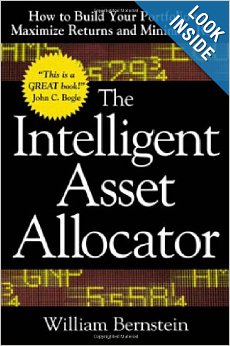





17 comments
Randy, chatting with you that night in Cassopolis MI was truly delightful and even though I thought, and still think, I am pretty good at the money thing, there is always more information and insight out there to be learned, or at least listened to. I have rethought my asset position with my home and am making some moves to capitalize on that asset in a couple different ways, even more so than I have before. Thank you for sharing your travels and also for the financial insights. Whether anybody reacts or responds is their loss, and your gain is that you certainly must know that you provide enjoyment for others. Thank you, and when in the area, give me a call – we’ll see a race together sometime again! Tim
Hey Tim, First glad you saw some value from the financial strategies I shared. I think being able to use some of the money that might be tied up in your house for other purposes, other than just sitting there, is a good choice. Money is a funny thing. I would make the strong statement that most people are not good money managers. Too many spend too much and too many spend too little. Most people do not want to take “money management” advice. They seem to think they have it figured out…when they don’t. Also, most people are unwilling to pay for financial advice. Then many people who are willing to listen and who might be willing to pay for financial advice can’t implement that advice. What a mess! I go back to the idea of, “Why do I take lessons from a golf pro?” The answer is simple. The golf pro can play golf better than me! I have always been 100% willing to listen to and then put others’ advice to work when those other folks can do what they are expert in better than I can. I also learned as a young sales manager that people don’t really change. They learned what they learned at a very early age. That’s why I would never want to earn my living as a financial manager or a golf pro. It would be too frustrating to teach people things and then watch them not use the advice! All the best, Randy
great article. thanks for sharing. I have sent it to my kids and nieces and nephews. You are doing very well.
Question: What do you plan to do when you are unable to manage the rebalancing? Do you have your wife or one of your kids in training to take over?
Hi Maury, Thanks for your post. Hopefully, it will be several years before I have to officially hand off the management of our portfolio. Nevertheless, I am always planning ahead. Our children are “in training” as you say right now. If something were to happen to me they could manage the portfolio. One of the advantages of this type of program is that with the exception of annual rebalancing it manages itself. All the best, Randy
Randy, you are always a fun and informative read, and I agree with most of what you say, and how you have reduced Carol’s food budget, and I assume shoes and purse budgets also. Are you the Randy Lewis I met in Laguna Niguel when I went to RVI from PG in 1986, and was working on IT with Budd Odell, and flew out to see his west coast Sales Manager?
John
Hey John, Nice to hear from you! Wow, that was 30 years ago? I’ll PM you to find out what you’ve been up too. Best, Randy
Randy,
Enjoyed reading this. Quite similar to what I’ve done. One possible difference. It sounds like you might have put your assets into the Vanguard funds all at once. I viewed that as a version of “market timing” and set up a program to “ease into” the funds over a 15 month period. Just, in my mind, a way to avoid buying in at the high water mark. Also, I’m not sure I’m as confident as you seem to be that my bond funds are much protection these days, with interest basically 0%, I’m pretty nervous about anything other than short term bond funds.
Anyhow, I always enjoy your posts. I hope your wife knows about clipping restaurant coupons so she can stretch her meager food budget!
Bob Schappell
Hi Bob,
Thanks for your note. You bring up some interesting ideas. I think of “market timing” as doing something because you think the market will go up or down and your action is designed to take advantage of a market move up or down.
You are correct. I did move all of my retirement money into Vanguard at one time. However, I had ZERO idea if the market was going to go up or down after I did that. I wasn’t trying to time the market. Since I didn’t know what the market was going to do the next day, the next month or the next year I just wanted to get going.
I have examined the idea of “dollar cost averaging”. I’ve never really bought into that concept. I’ll tell you why. You mentioned that you put your money in over a period of 15 months. I’m going to suggest that you really didn’t know if the market was going to go up or down during the next 15 months.
With dollar cost averaging if the market were to go up over that span of 15 months you would actually lose compared to putting all of your funds in the market on day one. If you were buying into a growing market over the span of any amount of time each purchase would give you fewer shares than if the market was flat or declining. If the market generally went down during those 15 months you would be likely to gain compared to an all at once strategy.
Neither of us would know or could accurately predict what the market was going to do over the next 15-month period. It’s probably not exactly a 50/50 proposition. The market does go UP over time. That’s why we put our money IN the market. Since the market does go up over time it might be more likely than not to go up over the next 15 months. As noted dollar cost averaging actually costs people in terms of ROI when folks are dollar cost averaging into a up market.
Net, I don’t see very much difference at all in investing all at once or dollar cost averaging into the market over a period of time. It’s all pretty much random as to what the market will do in the relative short run.
Here’s my position on bonds. I am not investing in them to get much of a return. I’m in bonds so that when the market tanks like it did during the financial crisis the bonds will mitigate the loss. In 2008 the S&P 500 went down 35-40%. Because we had about one-third of our investments in bonds our overall decline was only about 25%.
In winning markets I wish I didn’t have ANY money in bonds. However, in losing markets I’m more than happy to have a chunk of my portfolio in bonds. I know that bonds won’t go up like stocks but they won’t go don’t like stocks either. Historically, we are in a very low interest rate environment. Considering the “theory of recency” I’m thinking low interest rates will begin to revert to the mean sooner or later.
Regarding Carol and food coupons…..no one ever got fired for feeding their wife too little. This plan must be working. Carol is in the best shape of just about anyone I know, man or woman.
In closing I agree with your opening statement. We’re pretty much on the same page regarding our investment strategies. Why is that? I think it’s because we are playing the percentages. We’ve been trained to assess risk and reward. There aren’t all that many choices in retirement than can manage risk reasonably well AND generate the proper reward.
All the best,
Randy
Hi Randy just read your post. I feel lots better now that I feed you guys so well. I’m going to check in on this subject very soon. Come and see us anytime and I don’t charge $50 a night and sleeps better than a Marriot LOL. Take Care hope to see you both very soon. Thank you for the info. Go Sammy !!!!!!
Hey Kevin. Hi to you and Julie. Yes, we out kicked our coverage with those steaks at your place! I didn’t have to feed Carol again for three days after our visit! Will keep you posted when we are passing through. Randy
Hey Randy just read your link, very interesting. I sure ruined Carol diet when you visited us and yours too. I hope you guys stop and see us again soon. Take Care my friend. Kevin & Julie. Go Sammy !!!!!!!!!
I received a lot of very positive feedback from this post. I sent it out to the more than 2,000 person P&G retiree network. That group includes a lot of very astute people who the funds to invest. Here is a sampling of that feedback. I’ve got to great pains to make sure any reference to a specific individual has been removed.
Randy, thanks for sharing your info! I find it interesting that I also relied heavily on Bill Bernstein’s book for advice on how to invest my profit sharing proceeds and I went the Vanguard index fund route like you did. I also have about the same bond/stock mix. Part of my rationale in being heavily weighted in stocks is that I have “guaranteed” income coming from Social security starting in Jan when I turn 70. Happy retirement to you—I worked until my 60th birthday and have loved retirement!! XXXXXX, the same one you helped save over $850 on my new car!!!!)
Thanks for sharing the information. I found it very interesting and enlightening. I wholeheartedly agree that following the market on a day-to-day, week-to-week, etc. basis is not worthwhile.
Just wanted to share privately how much I enjoyed reading your blog, I don’t recall that you and I ever met during our P&G days, but we have a lot in common…. about the same age, worked for P&G about the same number of years, retired about the same time, and use the Bernstein approach to investing. While you do not say it directly, I’m guessing you were in Sales. Anyway, when I retired in 2003, another Geezer turned me on to the Bernstein approach, I read his books (I got the most out of Four Pillars of Investing), I set-up my portfolio accordingly, and have been using it ever since with similar results as you. It is logical, it works, it’s easy, and it requires very little effort.
Every now and then I post of Geezers extolling the virtues of this approach and recommending that people read Bernstein…. some seem to get it, some don’t.
Thanks for sharing, and here’s to continued success in the future. I am putting your blog commentary onto my internet “favorites” and intend to share it with my own children.
I checked out your blog… I found it refreshing that you don’t spend your retirement years sweating about your investments 24/7. I will likely retire next year and I admit, I am nervous as hell about it. I don’t know anything about managing investments, so I am planning to use a financial planner. But having read your formula – I will compare it to their plan to see how comparable it is…
Thanks for sharing. I’ll go over your ramblings. I’ve also sent your link to my kids and theirs spouses. I try to encourage investing, but only have the monies Uncle Procter gave me. (Which is more than enuff for a maintenance guy.)
I retired when I was 55 (8 years ago). It looks like you are enjoying yourself. Hopefully I’ll steal all your good ideas.
Very nice write up on personal financial planning. Thanks for sharing
Randy,
I’ll be sponsoring a grocery store gift card fund raiser for Carol; these will be for her to use to supplement the rations you are providing.
Am still a beliver in index/ETF investing but do supplement my spending with agressive use of covered calls on my PG stock and a few others I dabble in.
MYTH: You’ll spend less when you retire.
Steve
Great work, Randy! I had read your recap in prior years, but you tweak and revise it enough to keep it interesting. Funny photos help too! Like you, I’m invested in Vanguard index funds, and this year has been a good one.
hi randy….and carol,
i’m still enjoying reading your trackchasing reports and especially your thoughts and comments on various subjects and issuses. thanks for your annual update on ‘financial plan for a lifetime!’. i’ve already forwarded to a few friends and our kids. glad you and carol are enjoying life. earlier this year nancy and i were in europe (spain, france, italy and istanbul) for two months. my first european adventure and we had a great time. we planned and booked the whole trip through housetrip and booking.com with some additional help using tripadvisor and a few other sites.
your traveling tips interspersed over the years throughout your trackchasing reports have been very informative and useful and helped contribute to making our adventures successful and fun. we each got two different ‘no foreign transaction fee’ credit cards with no annual fee the first year that included a total of 100,000 miles for each of us. that was due to you and there have been many additional useful travel tidbits you’ve shared. thanks for all your travel tips over the years. some of us are listening and putting them to good use.
under ‘can’t miss items’ i would really enjoy more ‘trackchasing tourist attractions’ listings and maybe a reference date to be able to go back to the trackchasing issue it was reported in.
thanks randy and hi to carol, michael bloch
Michael,
Glad to see you’ve been “listening”. It sounds as if it’s paying off. I’m working right now on the Trackchasing Tourist Attraction link and hope to have it up and running well very soon.
Best,
Randy